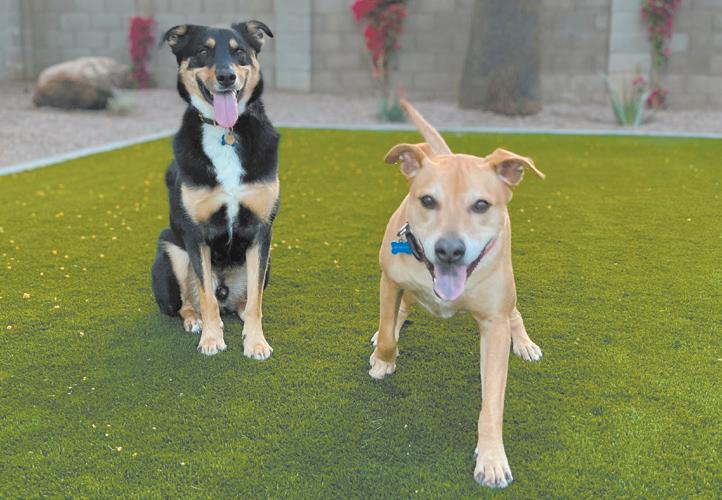
MOVE OVER BOB
AZ native Kate Glantz is redefining women’s roles in the skilled trades

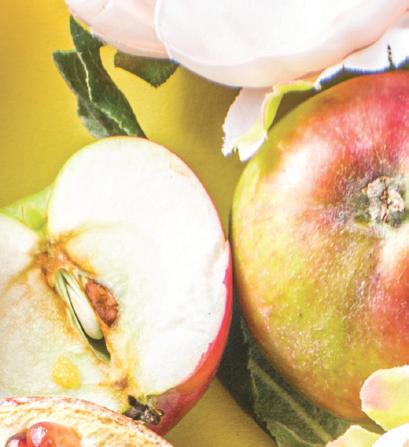




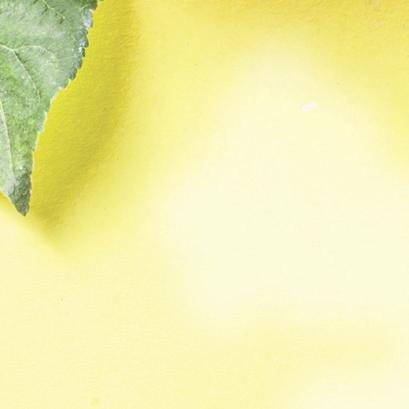


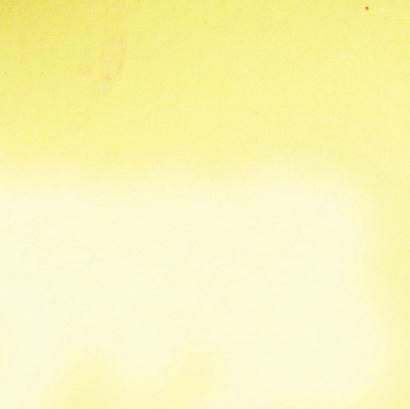



MOVE OVER BOB
AZ native Kate Glantz is redefining women’s roles in the skilled trades











SHANNON LEVITT | STAFF WRITER





On a Tuesday morning in late August, the Ina Levine Jewish Community Campus in Scottsdale was abuzz with Jewish educator energy. Roughly 120 teachers from Jewish day schools across the Valley — and one Tucson school — gathered for the Bureau of Jewish Education of Greater Phoenix’s (BJE) inaugural educators’ conference, “Empowering Educators in Arizona Jewish Schools.”
It was a landmark event for the organization, which hosts an annual conference for preschool teachers each February, but had never done so for day school faculty.

“We’ve done conferences for early childhood and religious school teachers for many years, so it was very exciting to bring on a new group of educators that we haven’t served before,” said BJE Executive Director Myra Shindler.
The Aug. 19 half-day event drew participants from across the Valley, including Phoenix Hebrew Academy, Torah Day School, Pardes Jewish Day School, Beis Chana of Arizona, Yeshiva High School, Shearim Torah High School, Arizona Jewish Academy, Tamim Academy-Chandler, Cheder Lubavitch of Arizona, as well as Tucson Hebrew Academy. Representatives from Gesher Disability Resources also attended and provided speakers.
SEE EDUCATORS, PAGE 3

Move over, honey cake, there’s a new recipe to try for the High Holidays. See page 15.



about her Judaism with her fellow council members and speaking out for her rights and beliefs.
SHANNON LEVITT | STAFF WRITER
The Mira Stahl EmpowerMH Foundation will host its first fundraising dinner in Arizona on Thursday, Nov. 6, aiming to rally donations and volunteers for trauma-informed mental health care in Israel.
The new nonprofit, co-founded by Phoenix clinical psychologist Dr. Yisroel Loeb, is named for Mira Stahl, an Israeli counselor, educator and community leader from Kibbutz Kfar Aza. Stahl was among the hundreds of civilians killed in the Hamas-led attacks on Oct. 7, 2023.
January 6
January 20
January 6
February 3
August 25
“My goal is to create a shared mission for the city of Phoenix, and the Jewish community, to come together and stand with us in support of this initiative,” Loeb said.
September 1
January 20
February 17
said Jon Meyers, director of ADDPC.
said Jon Meyers, director of ADDPC.
“Our hope is to create and promote opportunities for people to be embraced, become part of the community and find equitable opportunities wherever they might live,” he said.
now lives on through the foundation.
Loeb first came to Phoenix for his residency and later completed a postdoctoral fellowship working with veterans. He traveled across Arizona — including into prisons — evaluating nearly 1,000 people each year and guiding them through available mental health programs.
“Our hope is to create and promote opportunities for people to be embraced, become part of the community and find equitable opportunities wherever they might live,” he said.
Meyers first came to know Stern through her mother, Amy Silverman, who read her personal essays about raising a daughter with Down syndrome on KJZZ, National Public Radio’s Phoenix affiliate station.
Meyers first came to know Stern through her mother, Amy Silverman, who read her personal essays about raising a daughter with Down syndrome on KJZZ, National Public Radio’s Phoenix affiliate station.
Meyers was so captivated by the essays that he reached out to Silverman, and the two became friends.
Meyers was so captivated by the essays that he reached out to Silverman, and the two became friends.
“I loved it. My dream was always to be in the military and this was the next best thing. It was meaningful, impactful and interesting work,” he said.
That’s how Stern first learned of the open council seat, but there’s no doubt she earned her position, Meyers said.
That’s how Stern first learned of the open council seat, but there’s no doubt she earned her position, Meyers said.
To become a council member, Stern had to apply and demonstrate that she had something valuable to contribute, he said.
September 8
February 3
March 10
March 24
February 17
March 10
March 31
March 24
April 7
March 31
April 21
April 7
May 5
April 21
May 19
She already has some practice at advocating for herself.
about her Judaism with her fellow council members and speaking out for her rights and beliefs.
“One time, I was in class and someone called me the R-word and I told him not to. The teacher was in the hallway and another student repeated the word,” she said. Rather than letting the situation go, she told her theater teacher, who was able
She already has some practice at advocating for herself.
“One time, I was in class and someone called me the R-word and I told him not to. The teacher was in the hallway and another student repeated the word,” she said. Rather than letting the situation go, she told her theater teacher, who was able
“If someone has a disability, saying the R-word is like saying the F-word,”
“If someone has a disability, saying the R-word is like saying the F-word,”
While performing in the musical “Hairspray,” she had another occasion to tangle with the offensive word, which
While performing in the musical “Hairspray,” she had another occasion to tangle with the offensive word, which


Loeb’s path to creating the foundation began shortly after the attacks, when he became involved with Next October, an initiative designed to honor the victims by launching projects in their names. Next October connected Loeb with Stahl’s widow, Noam. The two quickly found common ground: Stahl had been dedicated to trauma therapy, and Loeb himself had specialized in trauma care for much of his career.
June 9
May 5
May 19
July 14
June 9
August 4
July 14
August 18*
August 4
1 September 8
September 15
October 6
That experience reinforced his understanding of how hard it can be for those without resources to access quality care — a challenge that remains central to his efforts in Israel today.
“That’s really bad and my friend said it on stage. I was not OK with that, so I went to the director and told her it was a bad word for people with disabilities, but she wouldn’t take it out,” Stern said.
10
“She’s on the council because she deserves to be on the council,” he said.
To become a council member, Stern had to apply and demonstrate that she had something valuable to contribute, he said.
Stern is creating a life and career as a member of her community, which makes her a great addition.

24
She let her mother know about the conflict and they were able to convince the director of the need to remove the
“That’s really bad and my friend said it on stage. I was not OK with that, so I went to the director and told her it was a bad word for people with disabilities, but she wouldn’t take it out,” Stern said.
7
15
October 13**
6
October 20
November 3
13**
20
November 10
3
November 17
December 1
“I experienced some trauma but it’s also what I’m interested in, and I was always the kid who got along with everybody but was never part of any clique,” Loeb told Jewish News last year while helping connect Arizona therapists with Israelis in need.
August 18* August 25
10 November 17
December 15
1
15
For her part, Stahl had long envisioned creating a training center for clinicians interested in body movement therapies as a path for helping traumatized patients. She used breathing and grounding exercises in her work and daily life, and her family recalled her teaching techniques to those around her.
“She’s on the council because she deserves to be on the council,” he said. Stern is creating a life and career as a member of her community, which makes her a great addition.
Stern graduated from McClintock High School in Tempe last year and now attends Glendale Community College, with a focus on dance. She is a regular performer at Detour Company Theatre, a Scottsdale theatre company for adults with intellectual, developmental and physical disabilities.
“As you said, if we jump enough, everything will pass,” her son Rotem wrote in a memorial post.
Stern graduated from McClintock High School in Tempe last year and now attends Glendale Community College, with a focus on dance. She is a regular performer at Detour Company Theatre, a Scottsdale theatre company for adults with intellectual, developmental and physical disabilities.
She let her mother know about the conflict and they were able to convince the director of the need to remove the word from the script.
“My friend Al was next to me when I told the director and he gave me the biggest hug ever and said that he loved me so much,” Stern said. Sadly, Al died in a car crash on Oct. 24, 2021.
therapies that integrate movement, psychodramatic tools and expressionbased approaches.
In fact, when Stern attended her first council meeting in January, she couldn’t wait to tell people of her involvement with Detour and share information about its upcoming shows.
of Magazine
Once he met Noam Stahl, Loeb said they realized they “shared a strong bond, shared mission and values.” That mission
Stahl’s passion for movement also grew from her decades of training and performing with the Hora Shemesh dance troupe. Her sister-in-law told the Israeli media outlet Mekomit that Stahl’s work “helped traumatized families and children overcome their fears, and also our family, in many ways.”
In fact, when Stern attended her first council meeting in January, she couldn’t wait to tell people of her involvement with Detour and share information about its upcoming shows.
“There’s no question that she is going to thrive,” Meyers said. “She’s very gregarious and passionate about the things that matter to her.”
The foundation Loeb has established will continue that vision, focusing on
The first training cohort begins in late October in partnership with the Israel Trauma Coalition and the municipality of Sha’ar HaNegev, where Kfar Aza is located. A new resilience center is under construction in the region, and the foundation will become part of its programming.
Heart Can’t Even Believe It: A Story of Science, Love and Down Syndrome,” Silverman’s book about her daughter. When Gesher’s speakers’ bureau, Damon Brooks & Associates, was asked to find a speaker about Down syndrome for an event this spring, Hummell first asked Silverman to speak, thinking Stern might be too young.
21
7
21
Heart Can’t Even Believe It: A Story of Science, Love and Down Syndrome,” Silverman’s book about her daughter. When Gesher’s speakers’ bureau, Damon Brooks & Associates, was asked to find a speaker about Down syndrome for an event this spring, Hummell first asked Silverman to speak, thinking Stern might be too young.
They decided instead that Stern should tell her own story; it’s a real bonus that she is not afraid of public speaking.
“That was hard; it’s very hard to get emotions out and I was very, very upset,” she said.
“My friend Al was next to me when I told the director and he gave me the biggest hug ever and said that he loved me so much,” Stern said. Sadly, Al died in a car crash on Oct. 24, 2021.
“That was hard; it’s very hard to get emotions out and I was very, very upset,” she said.
On the recent anniversary of his death, Stern made a cake and took it to the crash site.
“I don’t know how I did it without crying. I’m so proud of myself,” she said.
On the recent anniversary of his death, Stern made a cake and took it to the crash site.
Amy Hummell, executive director of Gesher Disability Resources, agreed that Stern is a good fit for ADDPC because of her ability to self-advocate.
“I don’t know how I did it without crying. I’m so proud of myself,” she said.
Each cohort will include 15 to 20 experienced therapists. Loeb hopes to run four cohorts per year, with classes held in Israel but open to clinicians worldwide.
“There’s no question that she is going to thrive,” Meyers said. “She’s very gregarious and passionate about the things that matter to her.”
Stern looks forward to sharing insights
Stern looks forward to sharing insights
The foundation has set four goals:
Amy Hummell, executive director of Gesher Disability Resources, agreed that Stern is a good fit for ADDPC because of her ability to self-advocate.
Hummell co-hosted a book event with Meyers a few years ago for “My
Hummell co-hosted a book event with Meyers a few years ago for “My
Phone: 602.870.9470 | Fax: 602.870.0426 | editor@jewishaz.com | advertising@jewishaz.com subscriptions@jewishaz.com | www.jewishaz.com
Suite 201, Scottsdale, AZ 85254 Phone: 602.870.9470 | editor@jewishaz.com | advertising@jewishaz.com subscriptions@jewishaz.com | www.jewishaz.com
PUBLISHER
PUBLISHER Jewish Community Foundation of Greater Phoenix
12701 N. Scottsdale Road, Suite 201, Scottsdale, AZ 85254 Phone: 602.870.9470 | Fax: 602.870.0426 | editor@jewishaz.com | advertising@jewishaz.com subscriptions@jewishaz.com | www.jewishaz.com
Jewish Community Foundation of Greater Phoenix
PUBLISHER
ADVERTISING SALES CONSULTANT
SENIOR ACCOUNT EXECUTIVE Jodi Lipson | 602.639.5866 jlipson@jewishaz.com
Jodi Lipson | 602.639.5866 jlipson@jewishaz.com
SUBSCRIPTIONS
Jewish Community Foundation of Greater Phoenix
GENERAL MANAGER Rich Solomon | 602.639.5861 rsolomon@jewishaz.com
GENERAL MANAGER
ASSOCIATE PUBLISHER Rich Solomon | 602.639.5861 rsolomon@jewishaz.com
Rich Solomon | 602.639.5861 rsolomon@jewishaz.com
MANAGING EDITOR Mala Blomquist | 602.639.5855 mblomquist@jewishaz.com
MANAGING EDITOR Mala Blomquist | 602.639.5855 mblomquist@jewishaz.com
MANAGING EDITOR
STAFF WRITER
STAFF WRITER Shannon Levitt | 602.639.5854 slevitt@jewishaz.com
Mala Blomquist | 602.639.5855 mblomquist@jewishaz.com
Shannon Levitt | 602.639.5854 slevitt@jewishaz.com
STAFF WRITER
Shannon Levitt | 602.639.5854 slevitt@jewishaz.com
ADVERTISING SALES CONSULTANT Jodi Lipson | 602.639.5866 jlipson@jewishaz.com
SUBSCRIPTIONS 602.870.9470 x 1 subscriptions@jewishaz.com
602.870.9470 x 1 subscriptions@jewishaz.com
SUBSCRIPTIONS 602.870.9470 x 1 subscriptions@jewishaz.com
GRAPHIC DESIGNER Ebony Brown | 410.902.2333 ads_phoenixjn@midatlanticmedia.com
GRAPHIC DESIGNER Ebony Brown | 410.902.2333 ads_phoenixjn@midatlanticmedia.com
They decided instead that Stern should tell her own story; it’s a real bonus that she is not afraid of public speaking.
“It’s not the same when someone tries to tell a person’s story for them,” Hummell said.
5
“It’s not the same when someone tries to tell a person’s story for them,” Hummell said.
Additionally, helping people with disabilities find jobs was one of the reasons for acquiring the bureau. Unemployment in the disability community is upwards of 75% and of that percentage, 75% are ready, willing and able to work — but haven’t been given the opportunity, Hummell said.
12
19 *Annual Directory **Best of Magazine
Additionally, helping people with disabilities find jobs was one of the reasons for acquiring the bureau. Unemployment in the disability community is upwards of 75% and of that percentage, 75% are ready, willing and able to work — but haven’t been given the opportunity, Hummell said.
“People have it in them to speak up but don’t know how, and often they’re not cheered on. Sophie has family support
GRAPHIC DESIGNER Ricki Urban | 602.870.9470 X 2 advertising@jewishaz.com WWW.JEWISHAZ.COM
“People have it in them to speak up but don’t know how, and often they’re not cheered on. Sophie has family support





The conference focused on neurodiversity and differentiated learning through a Jewish lens, offering practical strategies and community connections for educators tasked with teaching students whose needs and strengths span a broad spectrum.
The idea came from Phoenix educational consultant Lakie Blech, a longtime presence in Valley Jewish schools and a recent graduate of the Women’s Leadership Institute. As part of that program, participants design a volunteer project with a local Jewish agency.
Blech approached BJE with her idea for a day school educators’ conference, something she had been dreaming of for some time. There was just one catch: She wanted to launch it by August.
“It was a bit overwhelming for them at first because they were juggling many things, but BJE knows education and how to run a conference. I bring the on-theground K–12 educational piece, and I can call on friends and contacts I’ve leaned on for years,” Blech said.
“It just took a little bit of chutzpah, just like any big initiative in life does,” she added with a laugh.
BJE Program Director Marina Awerbuch, who has spent her career supporting educators, was impressed by the concept but worried about the tight schedule.
“When Lakie said she wanted to do it in August, I told her, ‘You’re cuckoo! That can’t be done,’” Awerbuch recalled. “But Lakie really pulled through. She organized the speakers, she fundraised a lot of costs and we worked together to reach out to all the schools.”
Blech was determined to deliver something meaningful.
“The educators kept saying they felt cared for that day, as people and professionals, and that’s what we were going for,” she said. “They give so much to the kids, but how often do they get given to? Having the ability to give these things is something I wanted to do.”
Blech also chose the conference theme, recognizing the challenges teachers face
• Empower therapists with advanced training to treat trauma and anxiety.
• Strengthen civilian populations in conflict zones.
• Continue Stahl’s work in trauma therapy.
• Promote research in trauma treatment through psychodrama and the arts.
Loeb emphasized that there is a shortage of clinicians trained in these methods, and he hopes the foundation will help fill the gap.
The Nov. 6 dinner will be the foundation’s first chance to build
in reaching every student. “This offered them ways to improve on what they’re already doing and resources to add to their toolkits. That can only benefit both the teacher and the student,” she explained.
The program began with a keynote by Dr. Debra Drang, a director with Prizmah: Center for Jewish Day Schools, a national network. She addressed how schools can design classrooms where all learners, whether neurotypical or neurodivergent, can thrive.
The morning continued with breakout sessions led by veteran educators and specialists. Topics ranged from managing ADHD in the classroom to strategies for differentiated instruction. Importantly, the sessions also gave teachers a chance to compare experiences and exchange resources, a luxury not often available to private-school educators who may have fewer support structures than their public-school colleagues.
Awerbuch, who sat in on one session about ADHD, noted how the conversations cut across denominational lines.
“Classrooms across the religious spectrum, from Orthodox to more secular, have some of the same challenges,” she said. “The discussion was about making content more engaging for neurodiverse learners, and you could see teachers having the takeaways of, ‘You’re not alone’ and ‘We all experience learning in a neurodiverse way.’”
The day concluded with grade-level collaboratives, where teachers sat in cross-school groups to discuss common questions, challenges and successes.
“The conversations were amazing,” Awerbuch said. “You could see they felt like they’re a part of a community, and they’re having similar questions, similar successes, similar struggles.”
To keep the momentum going, organizers created a WhatsApp group where participants can continue to share resources and offer support to one another.
The response from attendees has been overwhelmingly positive. Many schools indicated they plan to send even more teachers next year. Awerbuch and Blech are already tentatively planning something
support among Phoenix-area donors and volunteers. Loeb hopes to impress upon attendees that their contributions can have a direct impact on strengthening Israeli communities living under the shadow of conflict.
“We want people to get involved. That might mean sponsoring a table, volunteering or a million other ways to be supportive of what we’re doing,” Loeb said. “Mostly we want to raise awareness.”
Loeb also hopes the event will draw backing from across the spectrum of Jewish life in Arizona, from secular Jews to Orthodox families.

for October 2026.
On social media afterward, Blech couldn’t hide her delight. “Somebody pinch me!” she wrote, reflecting her surprise and pride at how well the event had gone.
Behind the scenes, the conference’s success was due not only to determination but also to community support. Blech fundraised much of the cost, leaning on longtime relationships and making the case that investing in Jewish educators ultimately strengthens the next generation of Jewish leaders.
“People really loved the idea,” she said. “They appreciated that it helps the teachers, which in turn helps the students.”
Even the few criticisms turned out to be lighthearted. In the post-event survey, one attendee’s only complaint was disappointment with the bagged bagels.
“If that’s the worst thing someone can say, the conference definitely went well,” Blech laughed.
Shindler said the event represents a new chapter for BJE. By extending its support to day school teachers, the organization strengthens its role as a convener and advocate for Jewish education across the state. JN



“This is about uniting around a mission that touches everyone,” he said. For Loeb, the foundation is both professional and deeply personal. It honors a fellow trauma therapist whose life and vision were cut short, while also carrying forward the values she embodied.
As the foundation begins its work, Loeb hopes the Phoenix community will see the dinner not just as a fundraiser, but as a chance to stand in solidarity with Israelis working to heal the wounds of Oct. 7. JN
For more information, visit mirastahlfoundation.org.
SHANNON LEVITT | STAFF WRITER
When the late Nancy Silver, a lifelong member of Congregation Beth Israel, first imagined creating an animal welfare nonprofit, she was sitting in the waiting room of a veterinary hospital, worrying about her beloved dog Miss Lacie. Silver could afford the bills, but what stayed with her was the sight of fellow pet owners facing gut-wrenching decisions because they couldn’t.
“It just broke my heart watching these people and their sick dogs,” Silver recalled in a 2018 interview with Jewish News.
That moment became the seed for Two Pups Wellness Fund, a Scottsdale-based nonprofit founded by Silver in 2017 with her family and fellow animal lovers. Named in memory of Miss Lacie and another family dog, Mr. P., the organization has since become a lifeline for animals in need, offering financial assistance for lifesaving treatments to injured, neglected or abandoned pets in shelters.
Silver, who was known for her charisma and love of a good time, started “Booze and a Band,” an annual fundraiser for her





nonprofit, where people could raise money for animals while listening to music and enjoying themselves — without the formality of classic philanthropic events. It was a tradition shut down by the COVID-19 pandemic, though she still held smaller gatherings until her passing in October 2024.
Her family, who understood her passion for the nonprofit she started, stepped in to ensure Two Pups’ continued success. Bob Silver, Nancy’s brother, became the nonprofit’s board chair “to carry on Nancy’s legacy and vision for helping animals,” according to a press release. (He was also the Center for Jewish Philanthropy of Greater Phoenix’s first board chair.)
Meanwhile, her niece, Jessica Hendricks, is co-chairing “Two-Step for Two Pups: Booze and a Band,” bringing back Silver’s signature event for the first time in five years.
It will take place Saturday, Oct. 4, at Handlebar J in Scottsdale, complete with live music, food, saloon-style drinks and a raffle. All proceeds will go to Two Pups

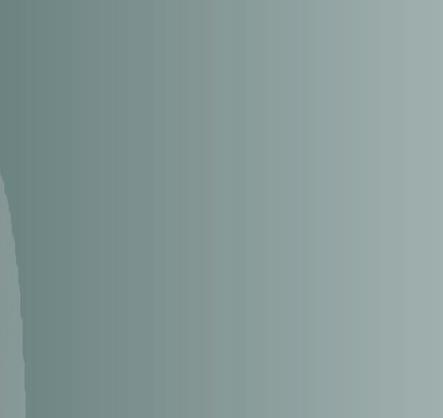

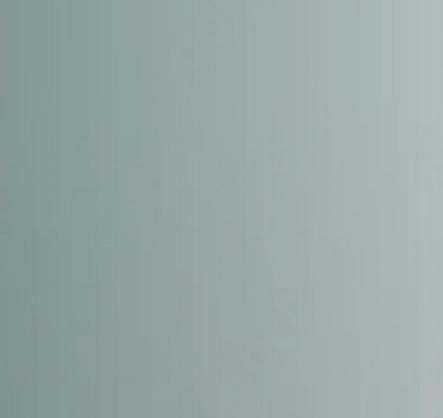





Wellness Fund.
The party will happen on the first anniversary of Silver’s death. It also happens to fall on the Catholic feast day of St. Francis of Assisi, the patron saint of animals. Though the family is Jewish, when they discovered the coincidence of the day, Hendricks said, “it seemed a bit like kismet.”
This year’s fundraiser will not only raise money for the animals Silver loved, but also honor her legacy.
“My aunt saw the struggle people had in not always being able to afford care for their animals and that’s how it started. But once she really dug in, she realized how big of an issue it was. It’s a system-wide issue of overlooked animals that need medical care without the money to pay for it,” Hendricks explained.
At the beginning, Two Pups worked in partnership with the Arizona Community Foundation, which helped it grow, Hendricks said. Within a few years, it became its own charitable organization and is funded entirely by private donations.
In its first year alone, the group helped provide care for 140 animals, according to Bip Haley, who oversees the nonprofit’s daily operations. Much of Two Pups’ work supports shelters that need help covering the cost of expensive treatments before adoption can move forward.
“Shelters often have situations where a dog will be going to a person, they want to adopt it, but they don’t want to adopt it sick or injured,” Haley told Jewish News in 2018. “The shelter will contact us and say, ‘Can you help this individual’s family?’ We will say yes, as long as we can run our finances through the shelter.”
That flexibility has made Two Pups a critical partner for Maricopa County’s animal shelters, among the largest in the nation.
A Maricopa County Animal Care and Control (MCACC) official told Jewish News in 2018 that Two Pups has transformed how the system approaches tough cases.
“We are the third-largest animal sheltering system in the country, and for years there was a culture of ‘Sorry, can’t do it,’” the official said. “Now there is a culture of hope.”
“The bulk of our work continues to be with animal shelters or rescues across the Valley trying to get care for these animals. Sometimes people think we’re actually a rescue. We’re not. We’re the financial part of it. Two Pups is there to support some of the care for a rescue animal to help it be adopted,” Hendricks explained.
Since its launch, Two Pups has funded medical treatments for thousands of animals


through partnerships with local rescues and municipal shelters. The support can cover a wide range of services, from surgeries and medications to specialized care for illnesses or injuries.
“My aunt always believed that no one should have to choose between their ability to pay and their pet’s life,” Hendricks said. “That belief will guide everything we do going forward.”
The October 4 event is for “pet-loving folks, ages 21 and older” who want to have a good time while supporting a cause that saves animal lives. It will definitely not be “stuffy,” something Silver detested, Hendricks said.
“If you ever met my aunt, she was all about the party, and she threw one heck of a party. She was so good at bringing people together, and she had so much charisma. While none of us are her, we are trying our best to honor her legacy and uphold it,” Hendricks said.
When asked why she decided to get involved with Two Pups, Hendricks said it’s a question she’s been pondering recently.
“If you knew my aunt, or talked to her about this, you would see her passion. It just feels like a no-brainer as her niece to step forward,” she said, before adding with a laugh that there might also be “a touch of Jewish guilt. Uncle Bob just gave me that look!”
In all seriousness, she explained that the family was very close and “my aunt was an instrumental person in my life.” JN
For more information, visit TwoPups.org.


Board Members Staff Members

Board Members

Board Members








Board Members Staff Members































































Staff Members
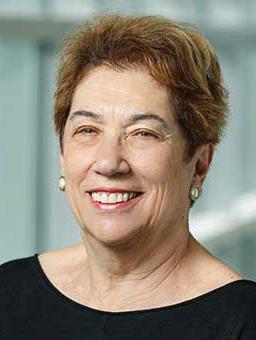
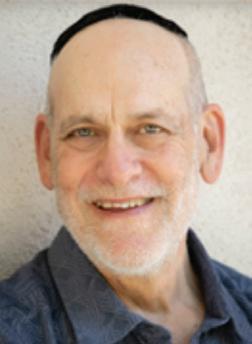





wishes everyone a shana tovah, a happy new year filled with joy and love. We invite you to join us in pursuit of improving lives in our communities through transformative learning and action. Here’s how you can plug into our work this year: Learn with us at our upcoming classes. We have multiple pluralistic o erings each week and options for both virtual or in-person learning.
join

you to join us in pursuit of improving lives in our communities through transformative learning and action.
Valley Beit Midrash wishes everyone a shana tovah, a happy new year filled with joy and love. We invite you to join us in pursuit of improving lives in our communities through transformative learning and action.
Here’s how you can plug into our work this year:
Here’s how you can plug into our work this year:
in pursuit of improving lives in our communities through transformative
Here’s how you can plug into our work this year:
a happy new year filled with joy and love. We invite you to join us in pursuit of improving lives in our communities through transformative learning and action.
improving lives in our communities through transformative learning and action. Here’s how you can plug into our work this year: with us at our upcoming classes. We have multiple pluralistic o erings each week and options for both virtual or in-person learning. with us and volunteer with Arizona Jews for Justice to help uplift the most vulnerable members of our community.
and action. Here’s how you can plug into our work this year: Learn with us at our upcoming classes. We have multiple pluralistic o erings each week and options for both virtual or in-person learning.
Here’s how you can plug into our work this year: Learn with us at our upcoming classes. We have multiple pluralistic o erings each week and options for both virtual or in-person learning.
Learn with us at our upcoming classes. We have multiple pluralistic o erings each week and options for both virtual or in-person learning.

Valley Beit Midrash wishes everyone a shana tovah, a happy new year filled with joy and love. We invite you to join us in pursuit of improving lives in our communities through transformative learning and action. Here’s how you can plug into our work this year:
happy new year filled with joy and love. We invite you to join us in pursuit of improving lives in our communities through transformative learning and action.
of improving lives in our communities through transformative learning and action. Here’s how you can plug into our work this year:
Learn with us at our upcoming classes. We have multiple pluralistic o erings each week and options for both virtual or in-person learning.
Serve with us and volunteer with Arizona Jews for Justice to help uplift the most vulnerable members of our community.
Serve with us and volunteer with Arizona Jews for Justice to help uplift the most vulnerable members of our community.
Serve with us and volunteer with Arizona Jews for Justice to help uplift the most vulnerable members of our community.
1. Learn with us at our upcoming classes. We have multiple pluralistic o erings each week and options for both virtual or in-person learning.
1. Learn with us at our upcoming classes. We have multiple pluralistic o erings each week and options for both virtual or in-person learning.
We hope this year will be a time of renewal and growth and that we will experience many joyful moments together in the year ahead. Board Members
1. Learn with us at our upcoming classes. We have multiple pluralistic o erings each week and options for both virtual or in-person learning.
Serve with us and volunteer with Arizona Jews for Justice to help uplift the most vulnerable members of our community.


Serve with us and volunteer with Arizona Jews for Justice to help uplift the most vulnerable members of our community.
2. Serve with us and volunteer with Arizona Jews for Justice to help uplift the most vulnerable members of our community.
2. Serve with us and volunteer with Arizona Jews for Justice to help uplift the most vulnerable members of our community.
2. Serve with us and volunteer with Arizona Jews for Justice to help uplift the most vulnerable members of our community.

3. Reach out if you are looking for internship or fellowship opportunities for teens and young adults. We would be thrilled to tell you more about our leadership development programs. Become a Legacy donor. By joining the Jewish Education Legacy Society of Valley Beit Midrash you will ensure VBM has the ability to provide engaging learning opportunities and save lives in our communities for many years to come.
3. Reach out if you are looking for internship or fellowship opportunities for teens and young adults. We would be thrilled to tell you more about our leadership development programs. Become a Legacy donor. By joining the Jewish Education Legacy Society of Valley Beit Midrash you will ensure VBM has the ability to provide engaging learning opportunities and save lives in our communities for many years to come.
3. Reach out if you are looking for internship or fellowship opportunities for teens and young adults. We would be thrilled to tell you more about our leadership development programs. Become a Legacy donor. By joining the Jewish Education Legacy Society of Valley Beit Midrash you will ensure VBM has the ability to provide engaging learning opportunities and save lives in our communities for many years to come.
3. Reach out if you are looking for internship or fellowship opportunities for teens and young adults. We would be thrilled to tell you more about our leadership development programs. Become a Legacy donor. By joining the Jewish Education Legacy Society of Valley Beit Midrash you will ensure VBM has the ability to provide engaging learning opportunities and save lives in our communities for many years to come.
3. Reach out if you are looking for internship or fellowship opportunities for teens and young adults. We would be thrilled to tell you more about our leadership development programs. Become a Legacy donor. By joining the Jewish Education Legacy Society of Valley Beit Midrash you will ensure VBM has the ability to provide engaging learning opportunities and save lives in our communities for many years to come.
3. Reach out if you are looking for internship or fellowship opportunities for teens and young adults. We would be thrilled to tell you more about our leadership development programs. Become a Legacy donor. By joining the Jewish Education Legacy Society of Valley Beit Midrash you will ensure VBM has the ability to provide engaging learning opportunities and save lives in our communities for many years to come.
3. Reach out if you are looking for internship or fellowship opportunities for teens and young adults. We would be thrilled to tell you more about our leadership development programs.
3. Reach out if you are looking for internship or fellowship opportunities for teens and young adults. We would be thrilled to tell you more about our leadership development programs.
3. Reach out if you are looking for internship or fellowship opportunities for teens and young adults. We would be thrilled to tell you more about our leadership development programs.



4. Become a Legacy donor. By joining the Jewish Education Legacy Society of Valley Beit Midrash you will ensure VBM has the ability to provide engaging learning opportunities and save lives in our communities for many years to come.
4. Become a Legacy donor. By joining the Jewish Education Legacy Society of Valley Beit Midrash you will ensure VBM has the ability to provide engaging learning opportunities and save lives in our communities for many years to come.
4. Become a Legacy donor. By joining the Jewish Education Legacy Society of Valley Beit Midrash you will ensure VBM has the ability to provide engaging learning opportunities and save lives in our communities for many years to come.
We hope this year will be a time of renewal and growth and that we will experience many joyful moments together in the year ahead.
We hope this year will be a time of renewal and growth and that we will experience many joyful moments together in the year ahead.
We hope this year will be a time of renewal and growth and that we will experience many joyful moments together in the year ahead.

We hope this year will be a time of renewal and growth and that we will experience many moments together in the year ahead.
We hope this year will be a time of renewal and growth and that we will experience many joyful moments together in the year ahead.
We hope this year will be a time of renewal and growth and that we will experience many joyful moments together in the year ahead.




We hope this year will be a time of renewal and growth and that we will experience many joyful moments together in the year ahead.
We hope this year will be a time of renewal and growth and that we will experience many joyful moments together in the year ahead.





























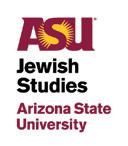



















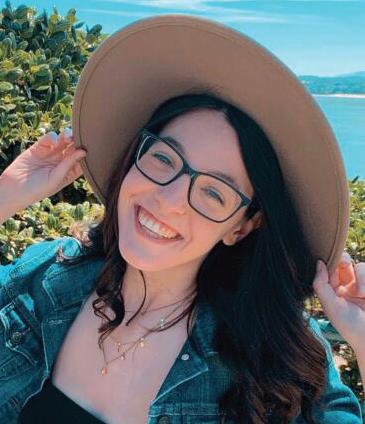








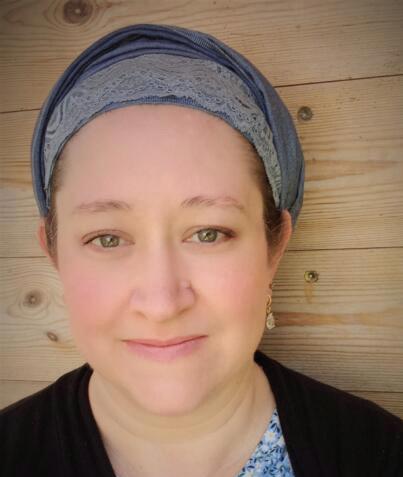






Rabbi






















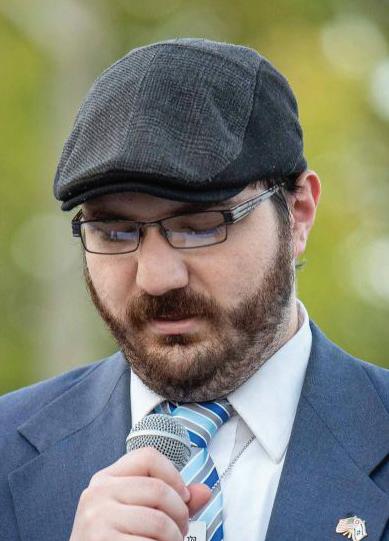









SHANNON LEVITT | STAFF WRITER
O
n Sunday, Sept. 7, Arizona State University’s Jewish Studies program opened its academic year with a provocative virtual lecture that examined how Poland has wrestled with its own history of the Holocaust. Polish historian Dariusz Stola spoke on the occasion of the annual Lowe Family Holocaust and Genocide Education Lecture, marking the first of 26 programs that ASU Jewish Studies will offer this year.
“ASU Jewish Studies is dedicated to disseminating knowledge of Jews and Judaism as widely as possible,” said program director Stanley Mirvis, noting that the lecture series is designed to challenge audiences to confront difficult truths about history and memory.
Stola, a professor at the Institute of Political Studies at the Polish Academy of Sciences and former director of the POLIN Museum of the History of Polish Jews, has authored six books and more than 100 scholarly articles on modern Polish history, the Holocaust, migration and communism. His talk, titled “Polish Reaction to the


Holocaust: The Never-Ending Controversy and Why Populists Like It,” traced decades of public debates in Poland over the role of nonJewish Poles during the Nazi occupation.
“My starting point was my personal observation of several large, truly national debates in Poland about the Polish-Jewish relations, the attitudes of non-Jewish Poles to Jewish neighbors, especially during the Second World War under the German occupation,” Stola said. He recalled that his first presentation on the subject took place in the late 1990s, when he assumed — incorrectly, as it turned out — that the national discussion had already peaked.
“That was just the beginning, as I learned later on,” he said.
What Poland has experienced, Stola argued, is not entirely unique. Other European countries have also struggled with their wartime histories: France over the Vichy regime’s collaboration, Switzerland over dormant Holocaust-era bank accounts and Germany through the high-profile “Historikerstreit” (a dispute in the late 1980s in West Germany between conservative and left-of-center academics and other intellectuals about how to incorporate Nazi Germany and the Holocaust into German historiography, and more generally into the German people’s view of themselves of the 1980s).
Still, Poland’s debates have been widespread and emotionally charged.
“Watching the Holocaust in Poland and in Eastern Europe was different from watching it in France, Denmark or Germany itself,” Stola said. “The killing was not somewhere else. In Poland, it happened in the towns, the forests, sometimes right in front of neighbors.”
Stola highlighted several key moments in Poland’s decades-long confrontation with its past:
1985–87: Even under communist censorship, debates broke out following the limited airing of Claude Lanzmann’s documentary “Shoah” and the publication of an essay by literary historian Jan Błonski. Błonski urged
Poles to acknowledge “symbolic compensation for indifference” toward their Jewish neighbors during the war, sparking public outrage and reflection.
Late 1980s–90s: Controversies erupted over religious symbols placed at Auschwitz and the establishment of a Carmelite convent near the camp, raising questions of how to commemorate victims and “who owns Auschwitz.”
2000–01: Historian Jan Tomasz Gross’s book “Neighbors” alleged that Polish villagers, not Germans, murdered hundreds of Jews in Jedwabne in 1941. The revelations triggered what Stola described as “the largest debate in Poland about the past ever,” drawing in politicians, bishops, intellectuals and ordinary citizens.
2018: Poland’s ruling Law and Justice party passed legislation criminalizing claims of Polish complicity in Nazi crimes. Known internationally as the “Holocaust complicity law,” it provoked international criticism and fears of limiting academic freedom and free speech.
2019: Nationalist parties mobilized around conspiracy theories that “world Jewry” sought massive property restitution from Poland, stoking antisemitic rhetoric in political campaigns.
“These debates are as much about the past as they are about the present,” Stola observed, noting how memory has been reshaped repeatedly by politics, ideology and shifting media landscapes.
Poland’s position as both the site and scene of the Holocaust has shaped its public memory, Stola explained. Millions of Poles, Jewish and non-Jewish, saw atrocities firsthand. Unlike Western Europe, where deportations often hid the fate of Jews, Poles witnessed mass shootings, ghettos in flames and transports arriving at nearby death camps.
“Watching the Holocaust was an unprecedented experience,” Stola said. “Coming to terms with it has been a major challenge.”
That challenge was compounded by four decades of communist rule, when official
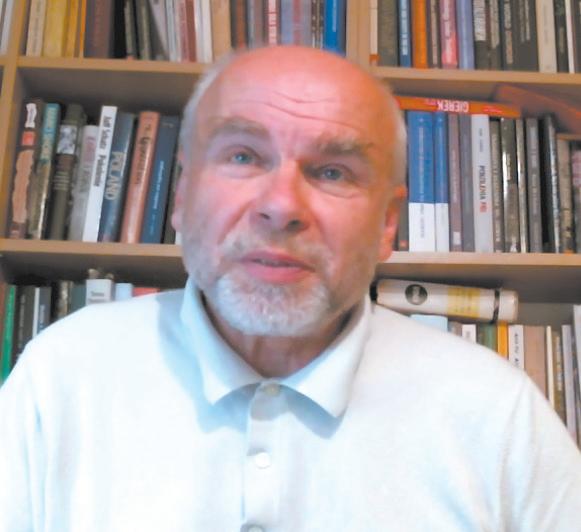
narratives downplayed the uniqueness of Jewish suffering. Schoolchildren, Stola recalled, were taught that six million “Polish victims” died in the war, with little distinction made between Jews and non-Jews. Only in literature, film and underground publications did more honest portrayals emerge.
The recurring disputes, Stola argued, reveal tensions between historical truth and national identity. For many Poles, acknowledging complicity undermines the cherished image of the nation as solely “martyrs and heroes.”
“The readiness to discuss painful moments in the past is greater among those better educated, younger and living in big cities,” he said. “But when your constituency is older, less educated and rural, you have no reason to support such debates. That’s exactly what populist parties have capitalized on.”
This dynamic, Stola suggested, is not limited to Poland. Around the world, populists exploit history to divide societies, presenting themselves as defenders of national honor against “corrupt elites” or supposed foreign conspiracies.
For ASU Jewish Studies, bringing Stola’s perspective to American audiences underscores the global stakes of Holocaust memory. The debates in Poland, while rooted in national history, raise universal questions about how societies confront uncomfortable truths.
“Victims never competed for attention,” Stola reflected, describing how political actors often pit Polish suffering against Jewish suffering. “It is always the third parties who frame memory as a competition.”
As Holocaust survivors pass away and eyewitness testimony becomes rarer, he warned, the battles over memory may intensify. What remains, then, is the work of scholars, educators and institutions to sustain honest engagement with the past. JN
For more information, visit jewishstudies.asu.edu.
SHANNON LEVITT | STAFF WRITER
When Arizona native Kate Glantz returned to the Valley after two decades away, she brought back more than her luggage and memories — she came home with a mission.
“I had this thesis,” Glantz says, “that if you put a power tool in a woman’s hand and teach her how to use it, her selfreliance will grow in every part of her life.”
That idea became the foundation for “Move Over Bob,” the media and lifestyle company Glantz co-founded in 2024, which is redefining who belongs in the skilled trades. Glantz hopes to inspire young women and girls to pursue careers in construction, plumbing, electrical work, welding and other hands-on trades, and to make those careers look as empowering as they are essential.
Glantz, a Jewish entrepreneur and lifelong social impact advocate, is bringing the trades into the spotlight, not just as jobs, but as vibrant, modern careers that deserve respect and representation. And she’s doing it with a glossy new magazine, community partnerships and a fierce belief in her mission.
Raised in the Valley, Glantz grew up attending Jewish preschool at Beth El Phoenix and became a bat mitzvah at Temple Kol Ami in Scottsdale. After graduating from public schools and earning her degree from the University of Michigan, she headed to Tanzania with the Peace Corps, where she worked in public health education.
“There was no electricity, no running water, no toilets,” she recalled. “After a storm destroyed the school latrines, I essentially acted as a general contractor to rebuild them. At the time, I didn’t even know what a general contractor was.”
That experience planted an early seed that would one day grow into her passion for the trades.
After the Peace Corps, Glantz remained in Tanzania, working for the Centers for Disease Control in public health communications, a job that sometimes had her flying on a tiny plane with the U.S. ambassador. She later moved to Washington,
D.C., joined the State Department, and launched her first startup — a charitable wedding registry called Heartfully, which partnered with global nonprofits to allow generous couples to fund new wells and classrooms.
Construction kept appearing in the background of her career, even if she hadn’t yet claimed it as a path. She eventually transitioned to roles at Lyft and a film studio in Los Angeles, leading social impact work in tech and media. But it wasn’t until a layoff and a spontaneous decision to walk the 500-mile historic pilgrimage route, Camino de Santiago in Spain, that her next chapter became clear.
“By all societal standards, I was very successful. I was climbing the ladder in corporate America, I bought a home, but if a faucet had a drip, I wouldn’t have been able to address it. I had no life skills in terms of anything you built with your hands,” she said.
Looking back, she marvels at the failure of imagination necessary to make some connections in her interests and background that led her to her current path.
“Not one person ever said, ‘Oh, have you considered construction? You know, maybe engineering, maybe architecture,

I HAD THIS THESIS THAT IF YOU PUT A POWER TOOL IN A WOMAN’S HAND AND TEACH HER HOW TO USE IT, HER SELF-RELIANCE WILL GROW IN EVERY PART OF HER LIFE.”
maybe being an electrician?’ It never came up, not even one time.”
Today, women make up only about 5% of the construction workforce — a reality Glantz believes has nothing to do with skill or interest, and everything to do with access and visibility.
“We’ve discounted half the population for an industry that’s in desperate need of talent,” she says.
The problem is especially urgent in Arizona, where massive infrastructure projects like semiconductor plants and data centers are on the rise. With more than 40% of skilled tradespeople expected to retire in the next five years, the industry faces a critical talent shortage and women are an untapped solution.
But changing the narrative requires more than just job listings or trade school brochures. That’s where Move Over Bob steps in.
Glantz and her co-founder Angela Cacace — a tradeswoman based in North
















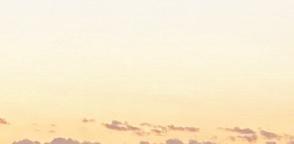















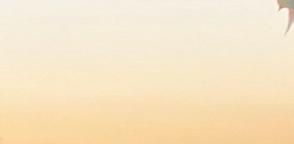







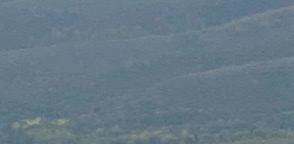


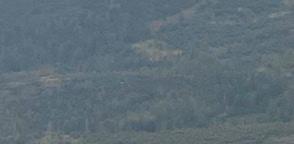

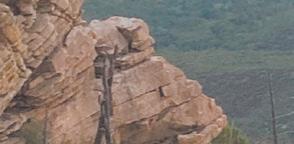







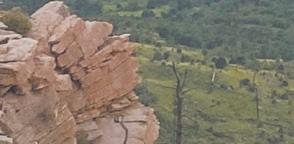


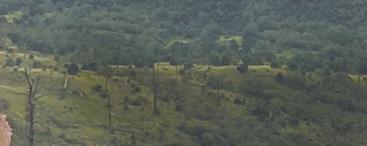

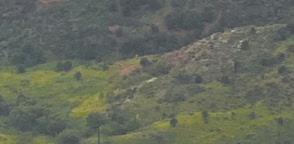






















ents accompanied the magazine, which helped students and families better understand opportunities — and potential salaries — in the trades.






Carolina — are building a media brand that humanizes and glamorizes tradeswomen, turning their stories into inspiration for the next generation.
The company’s first major product, a magazine, debuted in August and featured 50 pages filled with real women in construction — their job sites, their tools and their lives — complete with lifestyle tips, gear reviews and QR codes linking to videos and apprenticeships.
(Heather Lennon, a Jewish general contractor in Phoenix who was featured in Jewish News in 2024, will appear in the magazine.)
“We’re not giving you a pamphlet,” Glantz says. “We’re building culture.”
With interactive QR codes throughout the publication, Glantz and her team can track what readers are most interested in and adapt future content accordingly. And though the startup is rooted in Arizona for now, Glantz has her sights on national reach.
“This is such a unique approach to stir up the talent pool,” she says. “We’re building a strong ecosystem here — across education, workforce and industry. We wanted to start where we could actually see our impact.”
chapter.hvos@hadassah.org


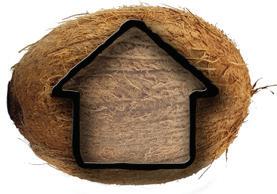


The name “Move Over Bob” came from Cacace, who once looked around her community college trade class and saw, to everyone’s surprise, that half the students were women. The instructor had never seen anything like it.
“She joked, ‘Move over, Bob, the women are here,’” Glantz said. “That turned into an Instagram hashtag and a website filled with interviews with tradeswomen across the country. There were more of us than anyone realized.”
When the two women were introduced through a mutual connection in Glantz’s social impact network, it was an instant match. “Honestly, it’s the best relationship I’ve ever had,” Glantz laughed. “She’s my business wife. We’re 50-50 partners.”
Move Over Bob’s first print run included 20,000 magazines, with half going to over 200 Arizona schools, career fairs, libraries and nonprofits like Habitat for Humanity and Junior Achievement. A reflection guide for teachers and a resource guide for par-
Throughout her journey — from village latrines in Tanzania to glossy magazines in Scottsdale — Glantz’s Jewish identity has been a quiet but steady force.
“I feel my lineage deeply,” she says. “The power of Jewish women, our culture of tzedakah, our commitment to service and community is just built into who I am.”
And while her sister, PJ LibraryPhoenix Program Director Marcy Lewis, is already a well-known and “beloved” figure in the Valley’s Jewish community, Glantz is making her own mark.
“I would love to see more Jews in construction,” she said. “Especially women.”
For Glantz, Move Over Bob isn’t just a brand. It’s a blueprint for what happens when you give women permission to build the world, and the power tools to do it. JN
For more information, visit moveoverbob.com.
Sara Arcus recently became Temple Kol Ami’s director of youth engagement. With her hire, the Scottsdale synagogue brought aboard a seasoned educator and Jewish community professional with a background in counseling, program development and youth leadership.
Arcus holds a Master’s in School Counseling from Flagstaff’s Northern Arizona University and a Bachelor of Science in Family Studies and Human Development with a minor in Special Education and Rehabilitation from Tucson’s University of Arizona. Since 2011, she has
In May, Rabbi Erica Burech received an honorary degree, Doctor of Divinity, from Hebrew Union College-Jewish Institute of Religion (HUC-JIR).
“It’s a deeply meaningful milestone that symbolizes 25 years of holy, sacred service as a rabbi,” Burech told Jewish News.
Burech leads a Shabbat service in her Paradise Valley home once a month called Shabbat Stop&Go. She is the former spiritual leader of Phoenix’s Congregation Merkaz Ha-Iyr, which closed its doors in 2020.
“It’s Shabbat — time to stop, take a breath, create holy space, have dinner and then go,” she said in 2023.
Burech also taught at Pardes Jewish
Last month, Arizona Jews for Justice (AJJ), a program of Valley Beit Midrash, announced the launch of two initiatives to support low-income families across the Phoenix metro area.
AJJ partnered with St. Mary’s Food Bank to open the Shalom Pantry, a community food resource. The pantry will serve all individuals and families facing food insecurity, not only Jews. AJJ made it clear that there will be kosher items available for
Jewish biographer and former Phoenician Judy Pearson will present her new book, “Radical Sisters: Shirley Temple Black, Rose Kushner, Evelyn Lauder and the Dawn of the Breast Cancer Movement” (Mayo Clinic Press, publishing September 16, 2025) at Phoenix’s Changing Hands Bookstore on Sept. 30.
The biography tells the story of three early women’s health advocates. When each was diagnosed in the 1970s and ‘80s, they faced a medical world full of outdated protocols and a lack of research.
Although they never met, the work of these women changed the future for breast cancer survivors who came after them,
served as an elementary school counselor in Mesa Public Schools, where she built a reputation for creating dynamic counseling programs and advocating for student wellbeing through social-emotional learning. Her work emphasized developing personal relationships to help children thrive, both academically and emotionally.
“Sara brings not only extensive experience in program development, but also a deep belief that meaningful relationships are the heart and soul of a strong Jewish community,” Rabbi Jeremy Schneider told Jewish News in an email.
Day School and ran Congregation Beth Israel’s religious school in Scottsdale. Jewish education has always been her specialty, something that the (HUC-JIR) highlighted in the certificate she, a consecrated rabbi, received.
“Whose innovative ideas have created Jewish learning that speaks to the needs of 21st-century students,” the certificate reads.
HUC-JIR is where Burech was ordained and began her rabbinic journey, she said.
This honor is an acknowledgement of her 25th year in the profession, and the institution let her know it was coming.
While there is a group celebration for all those who receive the degree, for Burech, “it’s personal and a recognition of the
those who observe Jewish dietary laws.
The Shalom Pantry includes a physical home base and will be mobile, too, as part of AJJ’s street outreach efforts. AJJ Outreach Coordinator Eli Johnson, who operates AJJ’s two “Let’s Be Better Humans” humanitarian buses, will oversee the mobile pantry. Using the buses, AJJ’s team provides food, drinks, clothing and hygiene products across the Valley to those without housing or transportation.
including Pearson herself.
Shirley Temple Black was the first celebrity to ever discuss her breast cancer publicly; Rose Kushner changed women’s health legislation, and published the first book for breast cancer patients; and Evelyn Lauder is the co-creator of the pink ribbon, the first comprehensive breast center and the Breast Cancer Research Foundation.
Pearson, a breast cancer survivor, was partly inspired to write the book because of the disproportionate number of Jewish women diagnosed with breast cancer or carrying the BRCA mutation.
“In 1974, Rose wrote, ‘For reasons still unknown, American-born Jewish women
Arcus’ professional experience extends deeply into the Jewish community as well. She has held multiple leadership positions in Jewish youth and camp programming, including at Camp Mountain Chai in San Diego, where she supervised staff, led programming for high schoolers and coordinated major camp trips. In Tucson, she served as the city director for B’nai B’rith Youth Organization (BBYO), overseeing four chapters, managing advisors and leading recruitment efforts. She also worked in various roles at the Tucson Jewish Community Center, including as assistant
passage of time,” she said. The honor reflects a lifetime of commitment to Jewish learning, leadership and pastoral care.
“It acknowledges the spiritual, emotional and communal impact that a rabbi has made through decades of guiding others, teaching Torah, lifecycle events and nurturing Jewish life,” she said.
Burech let her parents know of the honor and updated her resume, she said. Though she is very honored, she said being a rabbi for a quarter of a century is celebration enough.
camp director.

“Sara’s passion for helping youth and families feel confident and proud in their Jewish identity, along with her commitment to our synagogue’s mission of ‘doing Jewish’ — honoring tradition while embracing innovation — make her an incredible asset to our team and our future,” Schneider said. JN
For more information, visit templekolami.org.

“It’s such a blessing to be in this work, leading and connecting people and communities, acknowledging the sacred, being there for people and being present,” she said.
This acknowledgment is “a tribute to the communities I’ve had a blessing to serve and the values of a Jewish professional,” she said. JN
For more information on Shabbat Stop&Go, visit shabbatstopandgo.com.
In addition, AJJ partnered with the Arizona Diaper Bank to distribute diapers to families who need help to afford childcare basics.
“These initiatives are about dignity. Every person deserves access to food, diapers and basic necessities — no exceptions,” AJJ Founder Rabbi Shmuly Yanklowitz said in a press release. “We’re not just filling shelves; we’re meeting people where they are and building community.” JN To learn more, visit ArizonaJewsForJustice.org.
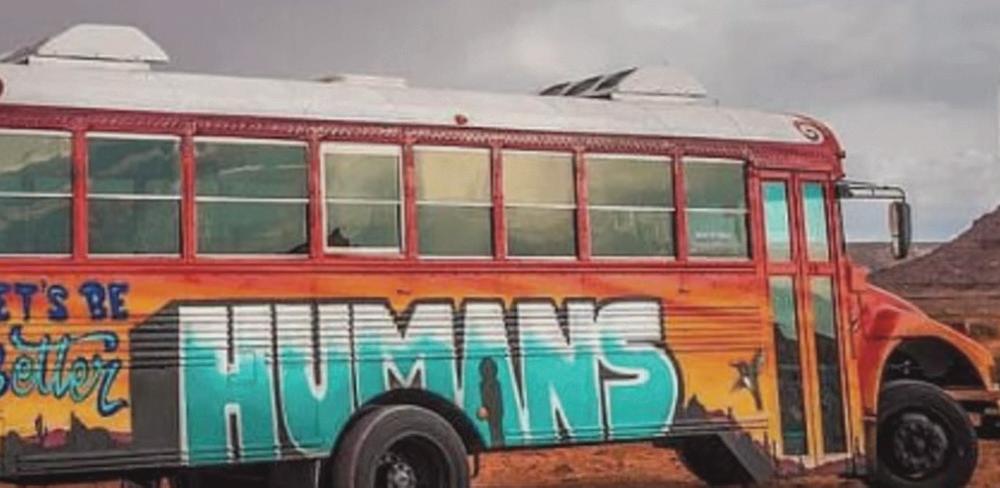
… have twice the U.S. incidence rate of breast cancer.’ She was right. An incredibly disproportionate number of Jewish women are diagnosed, as opposed to the general population. But while Jewish women need to be particularly vigilant about our breast health, spouting statistics is not nearly as effective as reading about actual women who changed the breast cancer landscape. More than 300,000 women will be diagnosed this year. They, and those who love them, owe these ‘radical sisters’ a debt of gratitude for their place in history,” Pearson told Jewish News in an email.
Pearson also said it’s “a perfect time” for the book’s release due to a new breast
cancer vaccine entering Phase 2 clinical trials, as well as the upcoming breast cancer awareness month in October.

Though Pearson no longer lives in the Valley, her sons and grandchildren are still residents of Greater Phoenix. JN
To learn more, visit judithlpearson.com.
JONATHAN GREENBLATT | SPECIAL TO THE JEWISH NEWS

The first time I sat at my wife’s family’s Rosh Hashanah table, I expected to see the apples and honey, but what I didn’t expect was a fish head. It was a tradition that was as foreign to me as it was ancient.
My wife’s family is Persian. Like many Persian Jews and Jews from other corners of the Diaspora, they mark the holiday with a Rosh Hashanah Seder: a sequence of symbolic foods, each paired with a prayer for the year ahead. Rituals with roots that span centuries and traverse continents.
I had never seen anything like it. That meal with my wife’s family was a vivid reminder that the diversity of Jewish tradition is one of our greatest strengths. Our heritage is not monolithic; it is a tapestry, embroidered over millennia by communities across the globe.
This time of year, those traditions call us to reflect, not only on where we have been, but on where we are going.
At the Anti-Defamation League (ADL), every day I see the urgency of defending the Jewish people. The reality can be grim: rising antisemitic incidents, harassment on campus, the relentless tide of online hate. It is depressing, maddening and heartbreaking. The threats are real, and vigilance is not optional. But I believe that the best selfdefense is built on something deeper: selfliteracy, self-knowledge and self-awareness.
Because Jewish life is not only something to guard, but also something to live in relationship with. Our heritage isn’t just an inheritance to be locked away for safekeeping; it’s a dialogue between past and present, between God and people, between Jews across the ages.
To know ourselves as Jews is to enter that relationship intentionally: to study, to question, to celebrate, to wrestle. That’s how tradition comes alive, not only in how we protect it, but in how we engage it.
Because what good is it to defend the Jewish people if we aren’t also deeply connected to what makes our heritage worth defending?
At ADL, we spend so much time engaged in the very necessary practice of Jewish defense — defending against antisemitism, defending Israel’s right to exist, defending our place at every table. It’s time to shift to Jewish offense. We need to give people reasons not just to survive as Jews, but to thrive as Jews. If your connection to Jewish life is purely cultural, go deeper into that culture in a meaningful way. Torah is part of that culture. Hebrew is part of that culture. Prayer and ritual are part of that culture. If social justice is your path, then study what Jewish tradition actually teaches about justice. Learn about the great debates. Enrich yourself in our history and texts. If your passion is the Jewish state, then learn about it, travel there, understand its complexity. If you’re intrigued by other Jewish cultures, make the effort to explore them. Visit their synagogues, learn their melodies, taste their holiday foods and hear their stories.
In other words, whatever your entry point, enrich yourself in it. Don’t let your Jewish identity be defined solely by the acts of our enemies such as antisemitism or the Holocaust. Let’s define our identity ourselves based on who we are and what we love.
That search for depth is, at its core, about finding your “why.” The late Hersh Goldberg-Polin, murdered in Hamas captivity after being kidnapped on Oct. 7, understood this in a way that is both inspiring and heartbreaking. While in captivity, Hersh told a fellow hostage a line from Holocaust survivor Viktor Frankl, “He who has a why, will find the how.” For Hersh, that “why” was the people he loved, the hope that anchored him through unthinkable suffering. His words gave others the strength to endure as well.
Knowing your why fuels resilience. It transforms endurance into purpose. It’s what shows us how to move from holding the line to building the future.
For me, the why is my Jewish identity, which grounds how I continue this fight day after day. For me, that identity is rooted first and foremost in a profound love for the Jewish people. That love has guided my path, from cherishing the memories of my grandparents to building new traditions with my own family to ultimately joining ADL as another way to stand with and for our community. To be clear, I believe Torah matters. I relish Shabbat each and every week. At the same time, my connection isn’t expressed only through ritual observance or Limmud. It’s expressed in the work: showing up for Jewish students
who feel alone on campus, pushing back against extremists who traffic in antisemitism, building coalitions that strengthen our community’s future.
That’s what grounds me, and that’s what keeps me going.
Last December, in a conversation at Temple Emanu-El, my friend Bret Stephens of the New York Times shared similar advice: “Get 10% ‘Jewier,” he advised. “Wherever you are (in your practice), add 10%.”
I agree with Bret. However you choose to do it — through prayer, study, travel, family or tradition — make that choice intentional. But make the choice.
For some people, deep meaning this holiday season will come from standing in synagogue. Others will get it from studying Torah or Talmud. Some will find it in the food traditions, the family gatherings, simply being together. But whatever it is, root it in a “why.”
More Jews being more in touch with who we are benefits everyone. It strengthens us. It inspires the next generation. It ensures our story is not just preserved but lived. Indeed, living a thoroughly Jewish life is the best resistance against those who wish to defeat us. It is a defense that can endure any assault. It is a shield that can withstand any blow.
Shanah Tovah U’metukah. May this coming year be one of purpose, pride and renewed connection. Let us honor Hersh by finding our why and summoning the courage to live it. JN
Jonathan Greenblatt is CEO and national director of the Anti-Defamation League.
ANDREW SILOW-CARROLL | JTA
On stage Sunday, Sept. 7, at the Jewish Theological Seminary, the comedian Alex Edelman told a Jewish joke that he said he once read in an academic journal. It essentially goes like this: A man goes to heaven and meets God. Eager to please, the man asks God if He’d like to hear a joke. “I love jokes,” says God. So the man tells God a Holocaust joke. God doesn’t laugh and says, “I don’t find that funny.” “Well,” says the man. “I guess you had to be there.”
That startling punchline echoed as I read “The Last Jewish Joke,” a new book
on the rise and decline of Jewish humor by the eminent French sociologist Michel Wieviorka. The son of Holocaust survivors from Poland who also enjoyed a good Jewish joke, Wieviorka, 79, asserts that after a period of communal security and acceptance that followed the horrors of World War II, the conditions that led to the flourishing of Jewish humor have been depleted, both in the United States and France.
“This book is not a catalog of Jewish jokes,” Wieviorka, professor of sociology
at EHESS, Paris, told me in an interview. “It’s really an analysis of a golden age which is past.”
I understand what he means, even if I don’t necessarily agree with his conclusions. From the 1960s to roughly the year 2000, he suggests, American and French Jews enjoyed a period of openness: antisemitism was in decline, both countries moved toward a form of multiculturalism, there was a general consensus that the Holocaust was bad and that Israel was a force for good.
In such an environment, he writes,
“Jewish humor had a very clear and visible place, often found in political debates and also in literary, artistic and intellectual life.”
The past 25 years, however, saw a rise in antisemitism on both the right and the left. Islamists, Holocaust deniers and conspiracy theorists targeted Jews each in their own ways. Openness fasttracked assimilation, and a waning of engaged secular Jewishness. Israel was on its way to becoming an international pariah state, and Jews lost their status as a historically persecuted minority and were promoted to the status of privileged whites.
We are a diverse community. The views expressed in these opinion pieces do not necessarily reflect the views of the officers and boards of the Jewish Community Foundation, Center for Jewish Philanthropy, Jewish Federation of Greater Phoenix, Cleveland Jewish Publication Company or the staff of the Jewish News. Letters must respond to content published by the Jewish News and should be a maximum of 200 words. They may be edited for space and clarity. Unsigned letters will not be published. Letters and op-ed submissions should be sent to editor@jewishaz.com

RABBI SHOLOM TWERSKI
PARSHAH NITZAVIM:
DEUTERONOMY 29:9 - 30:20
“You stand this day, all of you, before your God … to enter into the covenant of your God … I make this covenant, with its sanctions, not with you alone — but both with those who are standing here with us this day before our God and with those who are not with us here this day.”
Standing on the banks of the Yarden, ready to cross into the Promised Land, G-d once again established a covenant with the assembled people. As the verse makes clear, the covenant was not restricted to the particular people. It was established with the “those that are here, and even those that are not here.” This indicates the entire nation, including all future generations of Jews, as well.
The Targum Yonatan ben Uziel, an ancient Aramaic translation/commentary, explains the verse with a very interesting twist. He writes that the covenant is not restricted to the current generation — rather “with all of the previous generations
“The space for benevolent feelings toward Jews became narrower and narrower,” he said. “And when this space is narrower and narrower, it’s more difficult to make humor, not only for your group, but also for people other than those that belong to your group.”
The golden age that he describes — which in the United States roughly extends from the heyday of the Borscht Belt to the finale of “Seinfeld” — encouraged what Wieviorka considers three essential traits of Jewish humor. First, it laughs at ourselves — not at others. Second, it doesn’t punch down: Anti-Belgian jokes may work in Paris cafés, but Jewish humor doesn’t thrive on cruelty. Third, it needs community. You can’t tell a Jewish joke in a vacuum; you need a knowing audience, a minyan of laughter.
The ideal Jewish joke also says something funny about the Jews without giving succor to antisemites. There is an assumption, says Wieviorka, that everyone is in on the joke, Jews and non-Jews alike.
He offers an example, a joke told by a family friend who worked in the shmatte, or clothing, business: A client places a large order at a wholesale clothing store in the shmatte district. When he asks for a receipt, the perplexed clerk consults with his boss. “A receipt?” says the boss, indignantly. “What kind of scam is he trying to pull?”
Wieviorka loves the joke, first of all, because his own forebears worked in the rag trade. While the joke leans into an anti-
from the beginning of time and all the generations that are destined to arise till the end of time.” It would seem that the covenant not only applies to future generations but also to previous generations!
What does that mean? How can one be bound by a treaty retroactively? In what way does that manifest itself? They’ve already lived their lives, made decisions, forged their path! To what effect is it that they are now part of the covenant?
Rabbi Michel Twerski suggests the following: If we can imagine a traveler who is driving and comes to a fork in the road. One direction is open while the other is blocked off with caution tape and a sign that says “Danger: Sinkholes!” Seized by a moment of curiosity and adventure, he decides to embark along the road which is barricaded. It’s like a bench with a sign “Wet Paint” taped to it. Invariably, people will feel the bench. Is it really wet? Is it still wet?
Our traveler has made a bad choice because the dangers, although posted, are theoretical and abstract. He has never himself seen a sinkhole and has not internalized the calamity that may occur. To his mind, the dangers proposed by a sinkhole are distant and removed.
What if he himself then ends up falling into a hole? Say he manages to call
semitic trope — the wily businessman — it does it in a way that a non-Jewish audience would identify with: nobody wanted to pay taxes in postwar France. And he likes the way it is a joke Jews tell on themselves — recognizing the absurdity of the boss’s paranoia, and how his accusation is a confession.
It’s a joke that could be told without reservations from the 1970s to the 1990s, when the Diaspora, he writes, “felt things were going rather well.”
In describing how things ended up going rather poorly, Wieviorka’s analysis seems spot on. “When the genocide and indeed the shock of its discovery lose their primacy as references, when interest in the intellectual heritage and cultural vitality of Yiddishkeit begins to wane, when Israel ceases to be viewed in a positive light, and when the capacity for bringing to life a Jewishness that also interests non-Jews is absent, these jokes can only appear as vestiges from the past,” he writes.
Except when they don’t, and that’s where I part ways with Wieviorka. Despite his dire warnings, Jewish humor appears alive and well, at least in the United States. The new Netflix animated series, “Long Story Short,” is a satire of a contemporary Jewish family, slathered with Yiddishisms and insider Jewish jokes and references. Another Netflix series, 2024’s “Nobody Wants This,” is about a single rabbi who falls in love with a non-Jewish podcaster. It abounds with
for help and is rescued, but at a cost. He may have lost time from his trip. Maybe he gets a ticket. Perhaps they can pull him out of the hole, but his car is beyond rescue. When he next travels this way and he gets to the fork in the road, what are the chances that he will once again choose this path? Slim indeed because he has now experienced the danger himself. He will feel foolish should the same thing happen to him again.
There are several ways of viewing the stories of the Torah. One can view them as a series of external ideas. The Torah relates the story of the fall of Adam and Eve, the depravity of the generation of the Flood, the defiance and hubris of the generation of the Tower of Babel. We have the story of Noah’s abuse of alcohol and his son taking advantage of him in that state with its ensuing curse. Stories of Abraham’s kindness, his dedication to G-d and His will, his loyalty to family. Jacob’s struggles with Laban’s deceit and his own commitment to hard work and honesty.
Viewed this way, the Torah presents many fascinating lessons in morality. Behaviors of which some are beloved by G-d and others which are despised. But they remain external to our experience. They are a sign along the path warning of potential dangers. We can heed the warn-
jokes about Shabbat, rabbis and, of course, intermarriage, and will return for a second season on Oct. 23.
Edelman, meanwhile, has had uncommon success with his one-man show, “Just for Us,” a stand-up comedy special about his boyhood at a Jewish day school and his more recent attempts to understand the antisemitism of white supremacists. The show moved to Broadway, is available on Netflix and launched Edelman into a higher plane: He’s in the cast of “The Paper” on Peacock. The show is a spinoff of “The Office,” NBC’s wildly popular and influential sitcom.
Even Edelman’s appearance at JTS was confirmation that Jews still love their comics. He shared a stage with the memoirist and novelist Shalom Auslander at “Spoiler,” a three-day festival celebrating the new MFA in Creative Writing program at Conservative Judaism’s flagship university, where both are teaching. The director of the program is the Israeli writer Etgar Keret, whose short-short stories seem to start as jokes — a talking goldfish grants wishes, a man dates a woman who transforms at night into a beer-drinking bro — and end with an emotional punchline. All of the comic projects above are trying to say something new. Yes, “Long Story Short” propagates the Jewish mother stereotype and “Nobody Wants This” includes cringey “shiksa” jokes and a few unpleasant stereotypes of its own. But both shows mine laughs from specific Jewish folkways
SHABBAT CANDLE LIGHTING
SEPTEMBER 19 - 6:10 P.M.
SHABBAT ENDS
SEPTEMBER 20 - 7:04 P.M.
ROSH HASHANAH CANDLE LIGHTING
SEPTEMBER 22 - 6:06 P.M.
SEPTEMBER 23 - AFTER 6:59 P.M.
HOLIDAY ENDS
SEPTEMBER 24- 6:58 P.M.
Find area congregations at JewishAZ.com, where you can also find our 2026 Community Directory.
ing but may just as well decide to experiment ourselves and see where it takes us. What G-d did when he included all of history in the covenant is that He opened another perspective for us. We can now view all these lessons, not as something which may have happened to others but events that we ourselves have experienced. We can reach into ourselves and draw upon the strength of our forefathers and their ability to cling to the Truth against adversity. Conversely, we have experienced the destructive force of greed, laziness, duplicity, hedonism and hatred. We have no need to experiment and would feel foolish if we decide to do so.
Let us connect ourselves to the long and rich history of the Jewish People and, in a very personal way, draw upon the lessons of the past to better our future. JN
Rabbi Sholom Twerski is the assistant rabbi of Beth Joseph Congregation and the rabbinic administrator at the Greater Phoenix Vaad Hakashrus.
in ways even the great Jewish comedians of the ”golden era” would not have dared. The same can be said for the 2020 comedy “Shiva Baby,” Adam Sandler’s 2024 movie “You Are So Not Invited to My Bat Mitzvah,” the 2025 farce “Bad Shabbos” and choice episodes of Larry David’s sitcom “Curb Your Enthusiasm.”
Even the Holocaust joke Edelman told feels fresh. In the guise of a staple of Jewish humor — guy goes to heaven, gets to meet God — it poses the central challenge of post-Shoah theology: “Where was God in the Holocaust?” Try that in the Catskills.
So much of what we call Jewish humor — of the Ashkenazi, American kind, anyway — is based on nostalgia. That’s not a bad thing. Judaism itself is a culture of retelling old stories, in hopes of connecting generations with a common vocabulary. Jewish humor can itself be a form of identity — which is better, as Wieviorka concedes in the conclusion of his book, than a “pure and simple forgetting.”
So maybe the last Jewish joke isn’t the last after all. Maybe it’s just the latest retelling of an old story — ours — one that keeps finding ways to make us laugh when the world conspires to make us cry. JN
The views and opinions expressed in this article are those of the author and do not necessarily reflect the views of JTA or its parent company, 70 Faces Media.








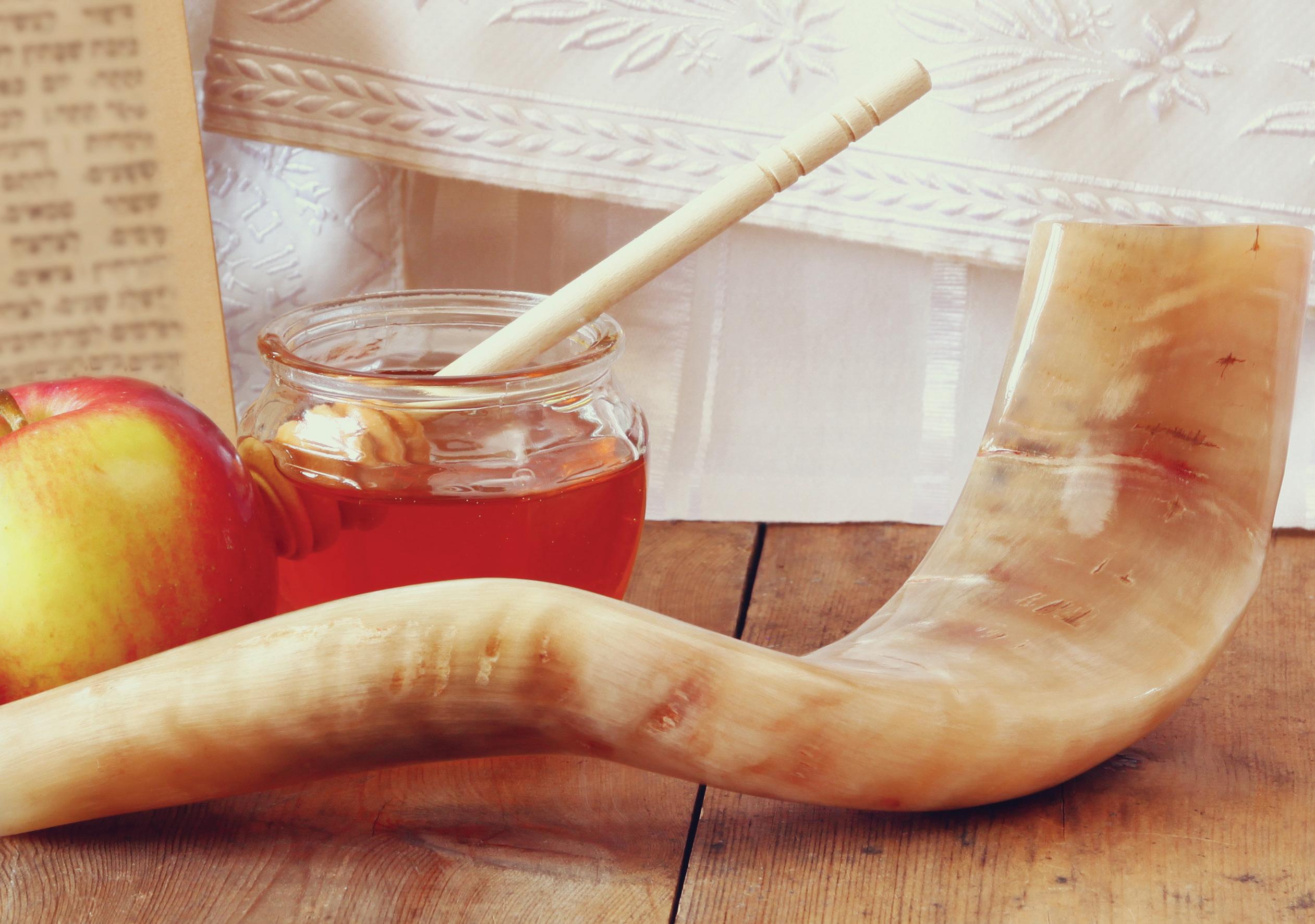
PENNY SCHWARTZ | JTA
Alaugh-out-loud Sukkot story that reimagines the classic tale of the three little pigs; an inspiring work of historical fiction about a Jewish family in Vienna fleeing Nazi persecution and becoming refugees in Shanghai; and a heartwarming Rosh Hashanah story about two quarreling sisters who promise to be better as the Jewish new year begins. These are among the titles in the new crop of kids books for the High Holidays that echo the themes of the holidays — a time for celebration and reflection, starting anew and welcoming guests.
Here’s a look at some of the notable reads for kids of all ages.
“My Shofar: A Rosh Hashanah Board Book”
Ann Diament Koffsky
Apples & Honey Press; ages baby-age 2
In this lively story, a playful young elephant with a pink bow tries hard to blow a very loud blast from her shofar, the kid-size version of the ram’s horn blown at synagogues during Rosh Hashanah. Kids will giggle when they discover what’s blocking the sound. Finally, the young elephant can blow a loud tekiah.
“Anyada Buena, Shanah Tovah”
Sarah Aroeste; illustrations by Maria Mola
Kar-Ben Publishing; ages 2-5
As fall begins, a young Sephardic girl and her family welcome Rosh Hashanah, the Jewish new year. “Anyada buena, shanah tovah,” she says, using the Ladino holiday greeting. Sarah Aroeste’s rhyming story — animated with Maria Mola’s colorful illustrations — is sprinkled with Ladino words, the centuries-old Sephardic language that Aroeste is one of the leading voices bringing to life today. She helps her father bake a golden brown round challah, among the special foods that grace her family’s Sephardic Rosh Hashanah table.
“Kayla and Kugel’s Super Sweet Rosh Hashanah”
Ann Diament Koffsky
Apples & Honey Press; ages 2-5
In the sixth book in a series about a Jewish girl and her canine sidekick, Kayla and Kugel are tasked with getting
supplies for Rosh Hashanah. But hijinks ensue when Kugel jumps into the pond where Kayla and her family will carry out the tashlich ritual and otherwise causes mayhem. In the end, the book demonstrates how Rosh Hashanah offers an opportunity for self-improvement.
“Lily’s Hong Kong Honey Cake”
Erica Lyons; illustrated by Bonnie Pang
Apples & Honey Press; ages 4-8
In Erica Lyons’ inspiring story of historical fiction, kids follow Lily, as her family flees Nazi rule in Vienna, where they own a bakery popular for their Rosh Hashanah honey cake. As Nazirule refugees in Shanghai, they open a bakery where they bake honey cake to welcome in a sweet new year. When they are forced to flee again, they must remain temporarily on the ship in the Hong Kong port along with other Jewish refugees. When Rosh Hashanah arrives, the clever Lily and the ship’s chef improvise with what they have and surprise everyone with loaves of the sweet honey cake. Lyons’ narrative is brought to life in Pang’s illustrations that reflect all of the places Lily learns to call home. Back pages include the history of Jews in Shanghai.
“The Three Little Sheep: A Tale for Sukkot”
Ann Diament Koffsky
Green Bean Books; ages 3-8
Jakey, Joey and Jennie are three adorable little sheep who help build their family’s sukkah in this humorous version of the Three Little Pigs. During the seven-day harvest holiday, Jewish families eat their meals in a sukkah — a small, open-roof hut — as a reminder of the dwellings of the ancient Israelites’ desert journey after God freed them from slavery. When the sheep grow too big to fit in their sukkah, mama sheep sends them off to build their own. The two older brothers build sukkahs that the (not-too-scary) wolf blows down. But the youngest sister builds a sturdy one, with room for her brothers. When the wolf shows up, he can’t huff and puff and blow it down. Jennie realizes he’s lonely and invites him to join them, reflecting Sukkot’s theme of welcoming guests.


“Slow Down, Shoshi!: It’s Shabbat in Uganda”
Shoshana Nambi; illustrated by Moran Yogev Kalaniot Books; ages 5-7
In Rabbi Shoshana Nambi’s heartwarming story, Shoshi, whose family is part of the Jewish Ugandan community — the Abayudaya — is a girl-on-the-go, always excited and in a hurry. She loves to help her grandfather, her Jjajja, harvest her family’s special coffee beans and bring them to the market. On Fridays, Shoshi buys food for her family’s Shabbat. “Slow down, Shoshi,” her grandmother cautions before she heads off along with her playful goat. But in her haste at the market, Shoshi forgets the Shabbat candles. With the help of her wise grandmother, Shoshi comes to understand the true meaning of welcoming Shabbat and the joy of being part of the Abayudaya community. Moran Yogev’s collage-style illustrations capture village life and the beautiful East African landscape.
“A Sukkah for Bella”
Jodie Sadowsky; photographs by Frannie Wilson Lovevery Publishing; ages 3-8
In Jodie Sadowsky’s story, brought to

life in Frannie Wilson’s photographs, kids meet Bella, an endearing girl who loves to build things. This year, Bella — the youngest in her family — is eager to help build her family’s sukkah. Kids will relate when Bella gets frustrated when she can’t do everything the older kids do. But Bella brings her flair to the sukkah by decorating it with colorful, handmade paper chains. At the story’s end, a beaming Bella holds a lulav and etrog, the fronds and fruit that are part of the holiday ritual. This book comes from a popular educational toy company


that has expanded into publishing and frequently illustrates its literacy materials with photographs rather than illustrations.
“Finding Forgiveness”
Rebecca Gardyn Levington; illustrated by Diana Mayo Farrar, Straus & Giroux; ages 4-8
In Rebecca Gardyn Levington’s touching — and relatable — story channeling the High Holidays spirit, two sisters have an argument on the day before Rosh Hashanah that leaves them both sulking.
The next day, at their synagogue, when Jews reflect on the past year and pray for forgiveness, the older sister notices her sister looking sad. She should have been a better listener, she realizes. When her family gathers at the river with the congregation for tashlich – the ritual tossing away of sins — the older one sees her sister still looking sad. She apologizes and the sisters make up with a hug and promise to be better. The book includes suggestions for meaningful apologies that all children can use. JN



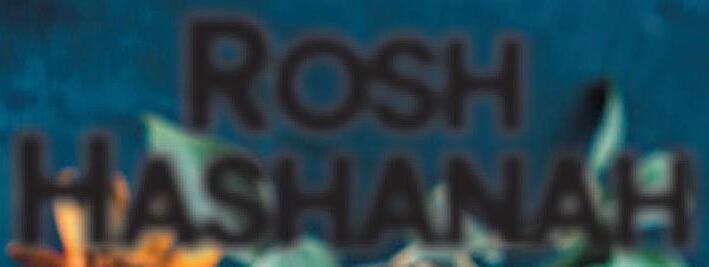



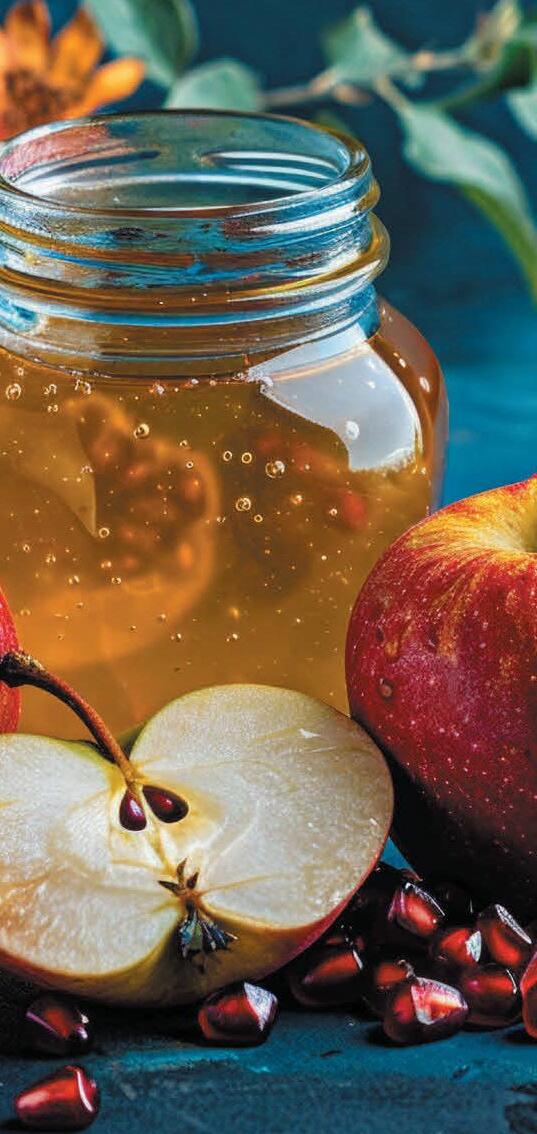








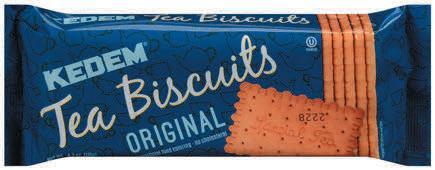








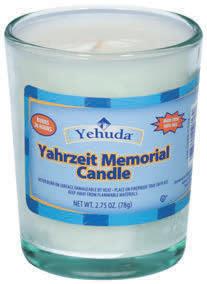

















VERED GUTTMAN | THE NOSHER
Apples dipped in honey and honey cakes are popular across the Jewish world around Rosh Hashanah. But if you grew up in Israel, you most likely came across a unique variation of honey treats: duvshaniyot. These dense, dark, round honey cookies are a must in many families’ High Holidays nosh rotation.
The modest duvshaniyot (their name derives from the Hebrew word dvash, meaning honey) seem to have been part of the Israeli repertoire forever, and you can find them on the cookie shelves in every supermarket in the country. They are cheap, pareve and last forever, so no wonder they have become a regular for Rosh Hashanah afternoon tea, for breaking the fast on Yom Kippur and for dipping in a cold glass of milk in the sukkah. But these unassuming cookies hold a long history, as most Jewish and Israeli dishes do.
Duvshaniyot are the Israeli adaptation of a popular Russian cookie called pryaniki. Dating back to medieval Russia, pryaniki were made with honey, rye flour and berry juice, and were known simply as “honey bread.” Starting around the 12th or 13th centuries, when Russia started opening up to imports from the Middle East and India, spices and dried fruit were added to the cookie. In different regions throughout Russia, people experimented with new additions to this cookie, from
jam filling to a later invention of sweetened condensed milk. Some versions were imprinted using delicate wooden forms, and some were simply rolled by hand and dipped in sugar glaze — the same version that’s still popular in Israel today.
People sometimes confuse pryaniki with German lebkuchen (also known as gingerbread cookies), but it is rare to see ginger added to these classic Russian cookies, and even lebkuchen don’t always have ginger in them. Traditionally, pryaniki were spiced with cinnamon, nutmeg, cardamom, coriander and even black pepper and cumin. In fact, their name, pryaniki, comes from the Russian word for spiced, pryanik.
Different versions of pryaniki can be found around Eastern Europe, like piernik in Poland and lect cookies in Slovenia, which are heart-shaped, painted red and artfully decorated with colorful icing. These Eastern European versions were traditionally served around Christmas, but were adapted by Jews for their own holidays, mainly Rosh Hashanah, for the use of the symbolic honey.
From Eastern Europe, the little honey cookie made its way to Israel and the United States. “The Settlement Cook Book,” a classic 1901 American Jewish cookbook by Lizzie Black Kander,

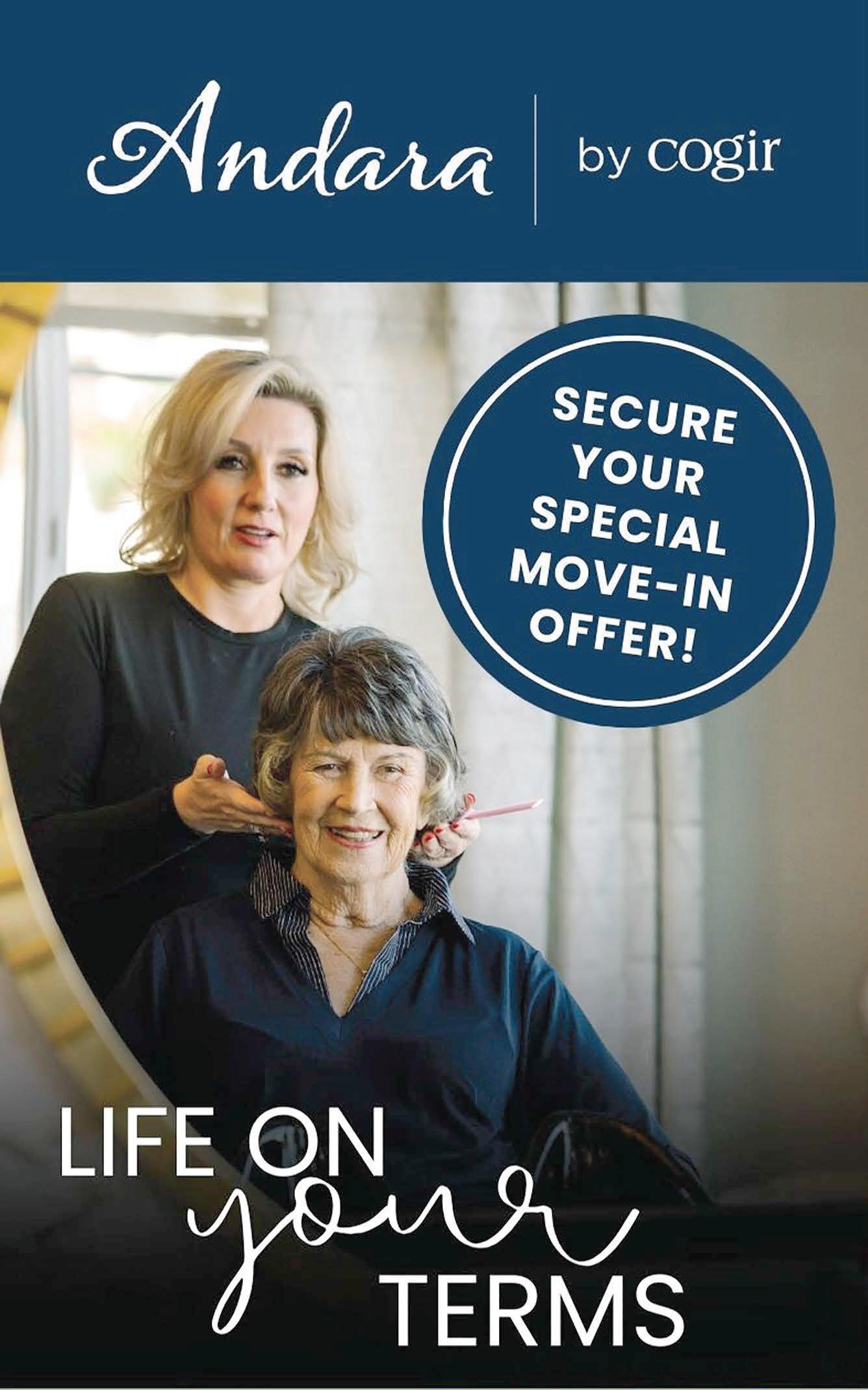




HIGH HOLIDAYS
COOKIES
CONTINUED FROM PAGE 15
includes two versions of lebkuchen, both with citrus and almonds, but no ginger. Even more interesting, is that neither include honey, but instead call for brown sugar or molasses.
An early Israeli cookbook, “Folklore Cookbook” by Molly Bar-David, has recipes for honey cookies that are similar to pryaniki and for lebkuchen. Bar-David suggests adding ginger to the honey cookies and calls for margarine instead of butter, maybe to keep the cookies pareve.
Today, Israeli manufacturers of duvshaniyot must be doing a good job, as I notice the same Israeli brand cookies at many Russian stores in the United States. But maybe because duvshaniyot are readily available in every supermarket, most Israelis do not prepare them at home. That’s a shame, because as is the case with most baked goods, homemade is better. And when the recipe is as easy as the one below, there’s no reason not to.
You can add any of the classic gingerbread cookie spices (cinnamon, nutmeg, cardamom, coriander, clove and even black pepper and cumin) as well as cocoa powder, strong coffee or chopped chocolate. Candied citrus peel or any tart candied fruit, as well as citrus zest. You can try to replace some of the flour with rye flour to be closer to the original Russian version, or replace some of the flour with almond meal and make it closer to the German lebkuchen. It’s up to you. Some recipes, including centuries-old recipes, suggest letting the dough rest for a few hours and up to a week before baking the cookies. This will deepen its flavors and will make rolling the dough easier. But even if you bake it right away, the cookies will improve with time, so I suggest baking them at least two days before serving. You can easily prepare them the week before Rosh Hashanah and then serve them for break the fast on Yom Kippur. JN
This recipe originally appeared on The Nosher.
(Israeli Honey Cookies)
Total Time: 4 hours 35 minutes
Yield: 30 cookies
Ingredients
For the cookies:
• ¾ cup honey
• ¼ cup light or dark brown sugar
• ½ cup butter
• 1 teaspoon cinnamon
• ½ teaspoon each cardamom, ginger, nutmeg, allspice
• ¹⁄8 teaspoon black pepper
• 2 large eggs, at room temperature
• 1 teaspoon lemon or orange zest
• 1 teaspoon baking powder
• ¼ teaspoon baking soda
• 2 ½ cups all-purpose flour (you can substitute half with rye flour)
For the sugar glaze:
2 cups powdered sugar
1 teaspoon lemon juice
2–3 tablespoons water
Instructions:
Place a saucepan with ½ inch water on a burner and turn to medium heat. Put a large metal or glass bowl over the saucepan and bring water to simmer. Once the water boils, add honey, sugar, butter and spices to the bowl and mix until butter melts and all the ingredients incorporate. Remove bowl from the heat and let cool for about 30 minutes. Add eggs and lemon zest to the bowl and mix.
Add baking powder, baking soda and flour to the mixture and mix with a wooden spoon or a spatula until smooth. Cover bowl and place in the fridge for 4 hours and up to overnight. When you‘re ready to bake, turn the oven to 350°F. Line two baking sheets with parchment paper.
Use your hands to roll 1-inch-round cookies and place them 2 inches apart on the baking sheet.
Bake for 13-15 minutes, switching between baking sheets after 7 minutes, until cookies are just golden at the bottom. Do not over-bake, as the cookies will become too hard. Transfer to a cooling rack until completely cold.
To make the sugar glaze, mix powdered sugar, lemon juice and 2 tablespoons water with a spoon in a medium bowl. If the mixture seems too dry, add up to 1 tablespoon more water and keep on mixing until a smooth glaze is formed.
Dip the cookie tops in the glaze and put back on the cooling rack to set.
Notes:
The cookie dough needs to chill in the refrigerator, or up to overnight. The cookies will improve with time, so I suggest baking them at least two days before serving, though you can keep them in a sealed container at room temperature up to a month.
ASAF ELIA-SHALEV | JTA
Congregation Shaare Zion, a large Orthodox synagogue serving the Syrian-Jewish community in Brooklyn, is taking an unprecedented step in the run-up to New York City’s mayoral election: Members and their spouses must show proof of voter registration before they can secure seats for the High Holidays.
One of the largest Sephardic synagogues in the country, Shaare Zion announced the requirement in a letter to congregants the first week of September that framed the election as a moment of acute risk for Jews in New York.
“In approximately two months, New York City will be electing its next Mayor,” the synagogue’s executive committee wrote, according to a copy obtained by Yeshiva World News. “The outcome of this election could result in very serious problems throughout the city and, in particular, the Jewish communities across the city including our own. The safety and quality of life for our community and our institutions may be at serious risk.”
The letter continued: “As a result, we have no choice but to require that all of our members and their spouses provide proof of voter registration prior to securing their High Holiday seats.”
This year, Rosh Hashanah will begin at sundown on Monday, Sept. 22, and Yom Kippur at sundown on Wednesday, Oct. 1.
The election is on Tuesday, Nov. 4.
The new policy comes just two weeks after Magen David Yeshivah, a flagship Sephardic day school nearby, also in the Gravesend neighborhood, issued a similar directive for parents, sparking debate about whether religious institutions should pressure members to register to vote.
Both moves are seen as responses to the frontrunner status of Zohran Mamdani, the Muslim democratic socialist lawmaker whose criticism of Israel and support for the boycott movement have unsettled many Jewish leaders.
The congregation did not immediately respond to a request for comment.
Shaare Zion, located on Ocean Parkway in Brooklyn, draws thousands of


worshippers for the High Holidays and serves as the hub of the city’s Syrian Jewish community. By tying holiday seating to voter registration, it is in effect launching one of the more sweeping Jewish voterregistration campaigns ever attempted by any religious institution in New York.
The synagogue’s announcement follows a sweeping new declaration
signed by more than 50 Syrian-Jewish rabbis from New York and New Jersey, which described registering to vote as a mitzvah — a religious obligation on par with prayer, charity and Jewish education. Together, the initiatives reflect a community treating the upcoming election as a turning point. JN


SHARON GOMPERTS AND RACHEL SHEFF | THE NOSHER
Every Rosh Hashanah, my mother, Rica, made a special and delicious simanim soup, which contained all the “simanim” (signs), symbolic vegetables that are used in the Sephardic Rosh Hashanah seder. Rooted in Kabbalah and with a clever play on the Aramaic names of the vegetables, Sephardim say blessings over these vegetables at the Seder, which include butternut squash, zucchini and Swiss chard.
My mother and father were born in Larache, an ancient port city founded by the Phoenicians on the northwestern coast of Morocco. Providentially located where the Loukkos River meets the Atlantic Ocean, Larache is the most important city in the Tetouan-Tanger region of Morocco. Larache is also where my ancestors found refuge after the Expulsion from Spain in 1492.
My paternal grandfather, Salomon Emquies, was the proprietor of a spice shop (so appropriate that Sharon and I are the Sephardic Spice Girls). My maternal grandfather, Moshe Bensabat, was
Ingredients:
For the meat:
• 3–4 pounds of beef cheek meat
• ¼ cup olive oil
• 1 large onion, finely diced
• 2 bay leaves
• 1 teaspoon salt
• ½ teaspoon white pepper
• Pinch of saffron (optional)
• 1 cup water
For the soup:
• ¼ cup olive oil
• 4 leeks, washed thoroughly and sliced thinly
• 1 bunch Swiss chard, with stem removed and chopped thinly
• 2 cups butternut squash, cubed (or acorn or Delicata squash)
• 1 large green apple or quince, peeled and cubed
• 2 large zucchini, peeled and diced
• 2 small sweet potatoes, peeled
and cubed
• 4 medium Yukon gold potatoes, peeled and cubed
• 1 large turnip, peeled and cubed
• 4 celery stalks, diced
• 3 large carrots, peeled and diced
• 2 parsnips, peeled and diced
• ½ small cabbage, thinly sliced
• 2 tablespoons chicken consommé powder
• ½ teaspoon white pepper
• 1 teaspoon turmeric
• Salt, to taste
Instructions:
For the meat: In a pressure cooker or large pot, add oil and warm over medium heat. Add onion and sauté for 5 minutes. Add meat, bay leaf and spices. Cook for 1 hour in a pressure cooker or until tender.
For the soup: In a very large pot, warm oil over medium heat, then add
sliced leeks. Sauté for 5 minutes until they start to soften.
Add all the ingredients, except Swiss chard, zucchini and butternut squash (set them aside).
Pour enough water to cover the top of the vegetables. Bring to a boil, cover the pot then lower heat to medium and simmer vegetables for 1 hour.
Add the zucchini and butternut squash. Simmer for another 30 minutes.
Add the Swiss chard, continue to simmer for an additional 30 minutes. Taste and adjust seasoning.
Notes:
This recipe makes a very large pot, so you should have enough to serve this soup for two meals.
Store soup in a tightly sealed container in the refrigerator for 5-7 days.
Beth Ami Temple
Looking for a warm and friendly congregation of active adults?

You are invited to our HIGH HOLIDAY SERVICES
Singles $125 Family $250 (Ticket cost can be applied to membership dues!)
Meet members of our congregation, Rabbi Allison Lawton, and Cantorial Soloist Michael Robbins
Our Dues are modest and No Building Fund
4027 E. Lincoln Drive, Paradise Valley (South side of Lincoln Drive, east of 32nd Street)
Sanctuary is located in the Unitarian Universalist Congregation
Website: https://bethamitemple.org
For High Holiday details and request tickets, contact us at: Email: Bethamitemple35@gmail.com Phone: 602-956-0805




SKYE ESTROFF | THE NOSHER
Our family’s approach to Yom Kippur break the fast is a Southern one. Many North Americans associate this feast with an array of sweet kugels, bagels with all of the accoutrements, rugelach in every flavor, blintzes and maybe a special cake or two. Chances are you have never seen a spread filled with egg casserole, cream cheese grits and homemade biscuits.
Before the early 1900s, my family had not either. How did this menu come to be for a half-Sephardi, half-Ashkenazi Jewish family? It’s a funny story.
I recently recovered my great-grandpa’s autobiography that had been stowed away in storage. He detailed the lengths that it would take to acquire kosher food in
Total Time: 3 hours-overnight Yield: Serves 4-6
Ingredients:
• 8 ounces challah, cubed (half a challah)
• 1½ cups shredded yellow cheddar cheese
• 6 large eggs
• 2 cups half-and-half
• 1 teaspoon mustard powder
• ½ teaspoon salt
• ¼ teaspoon black pepper
• ½ teaspoon garlic powder
• ½ teaspoon onion powder
Instructions:
Spread the cubed challah across the bottom of a 9×13 inch baking dish.
Sprinkle the shredded cheese evenly over the bread cubes.
In a large bowl, whisk together eggs, half-and-half, mustard powder, salt, pepper, garlic powder and onion powder until well combined.
Georgia in the early 20th century. Quick synopsis: It required special connections and effort to secure the holiday food necessities from the certified grocer. The “good stuff” was reserved for the residents of Atlanta, Augusta and Savannah, while little was set aside for small town Jewish families. My family was one of the latter so we had no choice but to incorporate ingredients that were more accessible into our meal planning. Eggs, grits and flour were much easier to secure than specialty meats. Thus, Southernstyle cuisine became intertwined with our family meals and traditions.
All of this to say that I’ve grown accus-
Pour the egg mixture evenly over the bread and cheese in the baking dish.
Cover the dish with plastic wrap or foil and refrigerate it overnight (or at least a couple of hours) to allow the bread to absorb the egg mixture.
Preheat the oven to 350°F.
Remove the casserole from the refrigerator and let it sit at room temperature for about 15 minutes while the oven preheats.
Bake, uncovered, for 45-50 minutes or until the top is golden brown and the casserole is set in the middle. You can insert a knife in the center to check if it’s fully cooked (it should come out clean).
Let the casserole cool for a few minutes before cutting and serving.
Notes:
The casserole needs to chill in the fridge for a couple of hours, or overnight, before baking.
The egg casserole can be made in advance; refrigerate overnight and forget it until an hour before sunset.
















tomed to this style of break the fast. I prefer it to the regretful annual reminder that my stomach is not meant to digest mounds of mayonnaise-laden proteins or seconds of sugar immediately after 24 hours without. Simple, flavorful and easily digestible foods are the strength and strategy in our Southern-inspired menu.
The hearty pièce de résistance of our table is my mom’s egg casserole. It’s silky, cheesy and smells amazing coming out of the oven. Egg casserole can be made in advance; refrigerate overnight and forget it until an hour before sunset.
When going in for the bake, know that the egg mixture will be settled so the ratio of bread to egg mixture will look skewed. It’s not. The “casserole” bakes
like a soufflé, so the egg mixture will rise and create a pillowy texture to complement the crusty bits of challah that are exposed at the top.
Feel free to modify this recipe to use any kind of bread (i.e. whole wheat, glutenfree, sourdough, etc.), milk instead of half-and-half or a different sharp cheese (Gruyere or Manchego would be nice). That’s the essence of my mom’s style of
Southern Jewish cooking — make it tasty, but creatively configure the ingredients to work for the specific group you’re hosting. Serve her egg casserole alongside cream cheese grits, thick-cut biscuits plus a little bit of fruit and not only will you be covered for the holiday, you’ll get a taste of the lesser-known tradition that we hold so dear. JN
This recipe originally appeared on
the chief Rabbi of Larache. He was the mohel, the shochet and conducted all the weddings.
One of the last wedding ceremonies that he performed before he made aliyah (emigrated to Israel) was that of my parents. Soon after, my parents moved to Casablanca, where my two older brothers and I were born.
When we emigrated to Los Angeles, my parents brought the jewelry that both sets of grandparents gifted my mother. They brought the menorah they had received as a wedding gift from her parents. And they brought with them the rich religious traditions of their childhood homes.
A treasured Spanish Moroccan custom, this recipe has been handed down over generations. This soup includes apples for
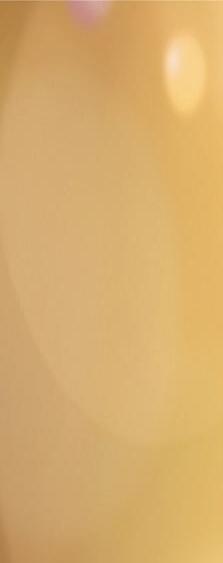

a “sweet year,” as well as beef cheek meat or beef neck bones, which symbolize the ram’s head and the fervent wish that we should be “the head and not the tail.” In making this soup, my mother would soak the leeks and Swiss chard. She would peel the apple, carrots, sweet potatoes and turnip. She would patiently chop all the vegetables. Then everything would slowly simmer with the meat in a big pot.
After the brachot (blessings), my mother would serve this nutritious, flavorful soup as the first course of our meal, a tasty connection to the many generations that came before us, passing down the faith and the Mesorah (oral Torah).
Over time, as more and more of my family became vegetarian, my mother started making this soup without meat. This year, I want to go back and make my mother’s original recipe. To accommodate all my












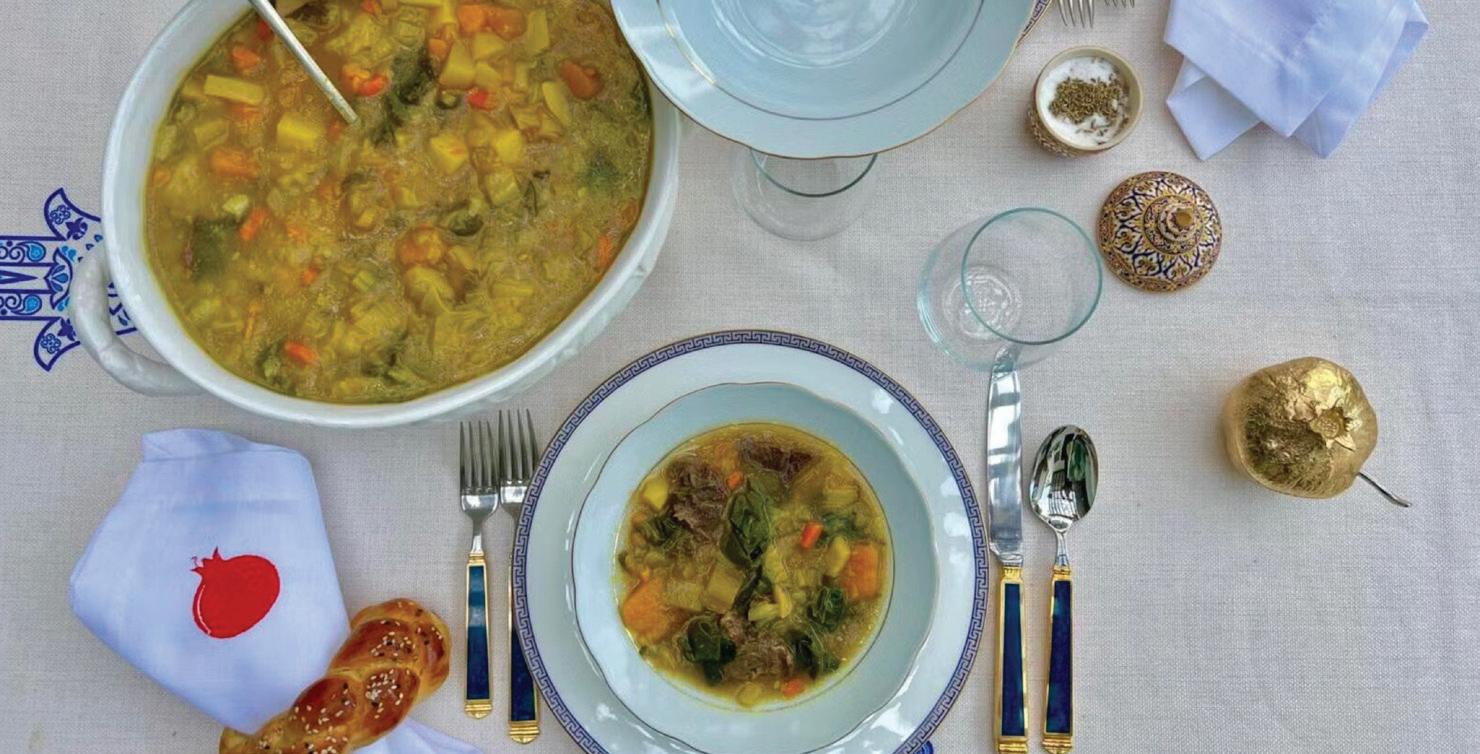
guests, I will cook the meat cheeks separately in my pressure cooker, then the meat eaters can add it to their bowl of soup.









ERIN BESER | JTA
Despite the near-constant worry over, well, nearly everything, but especially our family’s finances, my mother always made sure my brother and I had brandnew outfits on Rosh Hashanah. The shopping for the outfits was one major way my mother showed love. I have strong, happy memories of being with her in the changing room of bargain basements like Ross or TJ Maxx. I never felt so loved or taken care of in my whole life as when she helped me assess each item and took the “yes” pile to the cash register.
This year, my mother died. She declined rapidly with a type of dementia that robbed her first of the ability to speak and then after of the ability to do pretty much everything else. This Rosh Hashanah, I will still be in the traditional year of Jewish mourning mandated by the Biblical commandment to honor your mother and father.
And so buying my own children new outfits to mark the new year might make
a fitting tribute. But instead, my family and I are continuing a Rosh Hashanah tradition of our own, taking on a new habit meant to bring us closer together and put our values into practice. And this year we are committing to buying, if not nothing at all, then far, far less.
My family lives now, as we have for the last three years, in the Main Line suburbs of Philadelphia. We are some of the luckiest people in the world. We own our own home and it has a basement and a sunroom and a backyard and lots of closets. And it is full of stuff. So much stuff. Where does it all even come from? You know how it is. One-click shopping when the mood strikes. Instagram ads for that perfect item. Trips to Target and Whole Foods with my kids would be cheaper if I hired a babysitter with the tax it feels like I have to pay to get them in and out of the store.
Sometimes out of nowhere my son will scream, “I want something new!” He’s
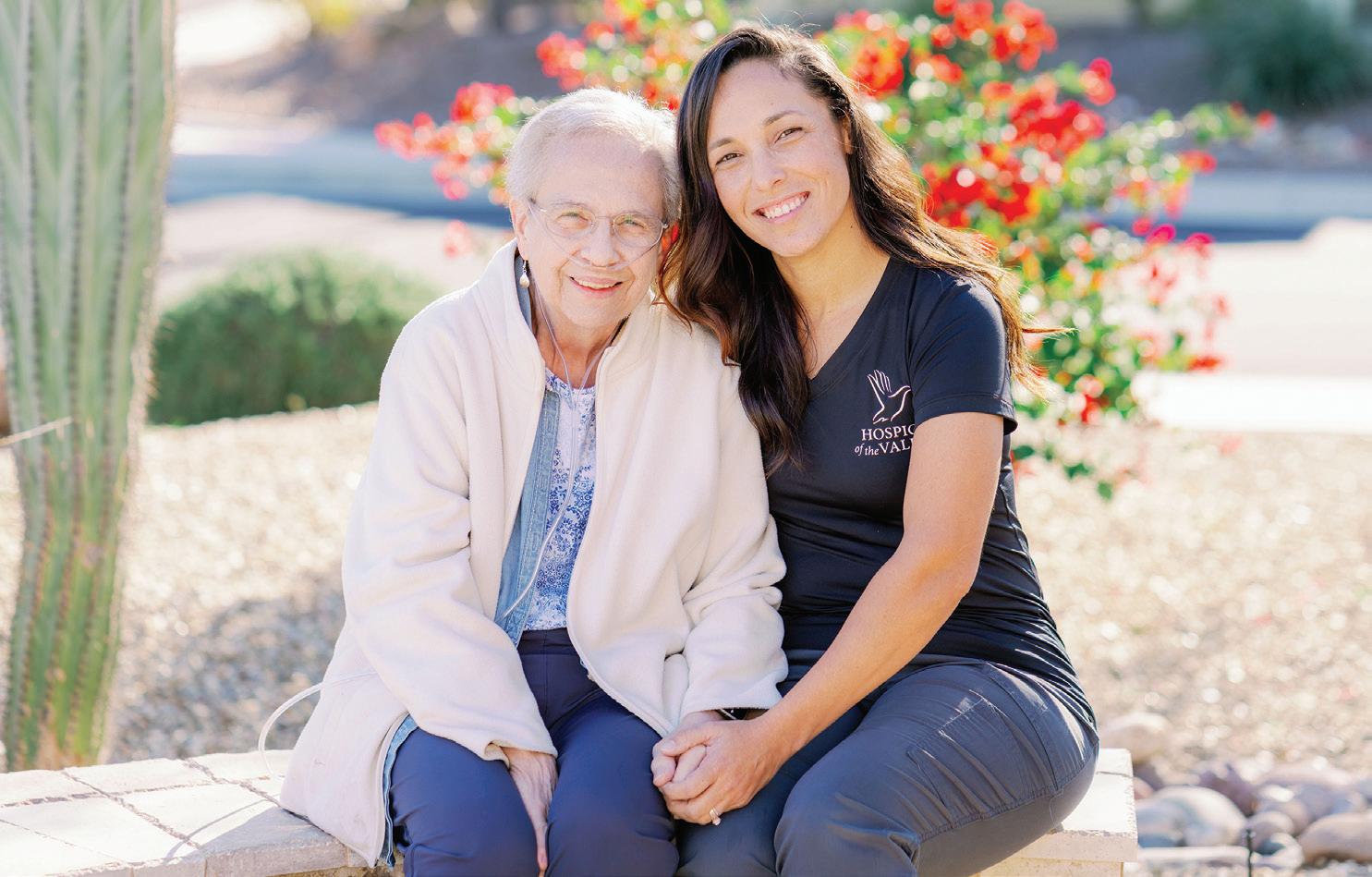

right. Sometimes I just want to scream it, too. It’s an itchy and uncomfortable feeling — stoked constantly by social media — and it is soothed almost immediately by shopping.
And yet as I have learned in my grief, the relief is only temporary. After it passes, I am still holding all of the bags, of my grief, my impulsiveness, my worry, my feelings that I want to be enough just as
I am — and of the fast-fashion, impulse purchases I’ve accumulated along the way. The High Holidays are an ideal time to turn intentions into plans. We are literally commanded to just show up, to stand before God and our community and take account, not of what we’ve spent, but of how we’ve spent our days. Not of what we own, but of who we are. We pray and sing
SEE PURCHASES, PAGE 22


"HOW DO WE CREATE A CULTURAL LEGACY FOR JEWISH WOMEN THAT ISN’T ONE OF MATERIALISTIC, SPOILED PRINCESSES OR THE OPPOSITE, THAT BEING A WOMAN FUNDAMENTALLY MEANS YOU ARE NEVER ENOUGH AS YOU ARE AND TRUE PERSONAL SATISFACTION IS JUST ONE PURCHASE AWAY?"


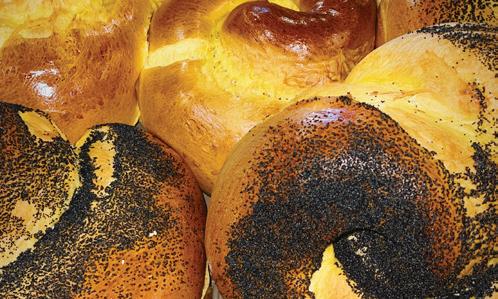
Celebrate Rosh Hashanah with a delicious dinner!
Enjoy a traditional menu featuring brisket, roasted chicken, fresh challah, and more.
Gather with loved ones and welcome the new year with a meal to remember. Place your order today! Shanah Tovah!



in community and ask God for the one thing money cannot ever buy, more time.
A few years ago, my husband, who is a rabbi, gave up eating meat in honor of the shemitah year (the year after seven that we let the earth lie fallow), in a sermon on Rosh Hashanah in front of his whole congregation. I like eating meat, by the way. But he hasn’t gone back and neither have our children. Last year, we zeroed out the daily, casual usage of screens: no TV, no video games, no iPad or phone, nothing except the occasional family movie as a very rare treat. To say it has been life-changing is an understatement.
Our family’s new plan has three parts. First, we’re adding “reduce” and “reuse” to our recycling practices. We will articulate the difference between needs and wants and save our wants for special occasions like birthdays and Hanukkah. I’m not canceling Hanukkah, because I am not a monster. We’ll just slow ourselves down to really reflect on what we need before we buy. And we’ll demonstrate some degree of vulnerability to ask our community first if they have something we’re looking for — and give back when, as we hope, our community reciprocates.
Second, we’ll seek out wisdom from our rich tradition. Jewish sources offer guidance, values and morals on the balance between materialism and meaning-
ful choices. The rabbis themselves wrote blessings for new clothes. They knew how awesome it feels to get something new. But these sources will also give us the story we need to be telling ourselves about who we are and what we are meant to do on this earth with our limited time, money and energy — and while we have a lot to learn, we’re pretty sure no answer will be to go shopping.
And third, I’m going to take a hard look at the role Jewish women play in American consumer culture (and the impact American consumer culture has had on the identity of Jewish women). Did my mom and her working-class mother of immigrant parents even stand a chance? Our people came from Eastern Europe with nothing and made it in America, to the land of opportunity. Why shouldn’t they take their hard-won affluence to Loehmann’s? I’m going to speak to American Jewish historians and ask them: How do we create a cultural legacy for Jewish women that isn’t one of materialistic, spoiled princesses or the opposite, that being a woman fundamentally means you are never enough as you are and true personal satisfaction is just one purchase away?


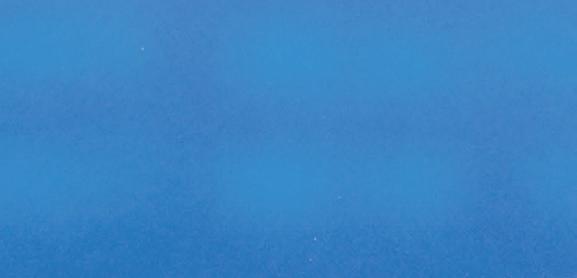

Wishing you and your loved ones a happy, healthy and peaceful New Year. From all of us at






Holidays LOOKING FOR SOMETHING DEEPER THIS YEAR? TEMPLE BETH SHOLOM OF THE EAST VALLEY WITH RABBI TRACEE ROSEN
This won’t be easy. Our culture is against us, and the memory of my mother in that dressing room is strong. In fact, one of the first indicators of my mother’s mental decline was that she would buy clothing in wildly wrong sizes for her grandchildren. After she died, my daughter, now 5, found a gymnastics outfit with tags on it in her closet, brand new and still a bit too large for her. “Who bought this for me?” she asked. Even from the grave, Savta is still spoiling us with new things. I inherited this love language from my mother, of shopping for the perfect item to lift the mood or brighten the day of the people I love. And I don’t want to forget it. But I want my children to speak other languages, too, ones drawn from the values of their faith, ones that fight for the planet they will need to survive, and ones still forming in my heart and theirs. I want them to hear love in many different ways, the ways we show up for each other as a family and let others in our community show up for us, the ways we lavish attention and time as the real present, the ways we slow down for each other and not try to occupy or fill our days, but to treasure and savor them. I think one day, when I’m gone, I hope they remember me for that.
our
Inclusive community
Meaningful services

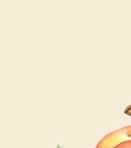







And until then, I will embrace the rhythm of Rosh Hashanah and the way that the Jewish calendar invites us to put down all of the bags we’ve been carrying, even if they’re just from TJ Maxx, and approach God, our communities and ourselves, just as we already are. JN
The views and opinions expressed in this article are those of the author and do not necessarily reflect the views of JTA or its parent company, 70 Faces Media.
RACHEL SEELIG | KVELLER
“Don’t you dare,” I said, just milliseconds before a red Matchbox car came catapulting toward my head. I scowled at my 2-year-old and gave him a stern finger-waggle. Without hesitating, he trotted over, touched my arm gently and said, “Sorry.”
I should have been pleased, right? But my toddler’s saccharine “sorry” (pronounced “sowwy”) was devoid of remorse. Were he capable of a genuine apology, he probably wouldn’t have thrown the stupid car at me in the first place. I should add that a few minutes later, he launched a yellow Matchbox car at my head.
With the approach of Yom Kippur, I find myself pondering that word, “sorry.” As both a Jew and a Canadian, I admit it’s one of the most heavily used words in my lexicon. But what purpose does it really serve? Is it a true expression of remorse? An attempt to get off the hook quickly? A way to avoid confrontation? (We Canadians are particularly adept at the latter kind of “sorry.”)
Every year on the eve of Yom Kippur, my parents and siblings call one another to make amends for the past year’s transgressions. I always considered this an enlightened tradition, until my husband asked me why we always rehearse the same script, something about “sorry for anything bad I’ve done.” Talk about a catchall apology. “It’s sort of formulaic,” he pointed out. “Do you ever apologize for anything specific?” I must admit, he has a point. When we make this round of phone calls, are we truly atoning for wrongdoing, or just trying to check teshuva, the cycle of repentance and forgiveness, off the to-do list?
As you may have guessed, my husband has a hard time saying “sorry.” The reason is in part cultural: born and raised in Germany, he bristles at Canadian niceties
and understands guilt as an almost unbearable burden carried on the national level, not as that slightly awkward feeling you get when your great aunt asks why you don’t want a second slice of her kugel. But saying sorry is also difficult for him because sincere apologies should be difficult. They emerge from an onerous process of selfreflection, acknowledgement of failure and heartfelt contrition.
Parenting guru Janet Lansbury sees “sorry” as one of the most difficult things children learn to say because it requires a high level of humility and vulnerability. It’s also loaded with parental expectations. I don’t know any parent who hasn’t asked, cajoled or even forced their child to apologize to the kid whose Lego they swiped or shin they kicked, only to have their child clam up or, even worse, completely fall apart. According to Lansbury, such moments are fueled by our own embarrassment and need to save face among other parents, as opposed to a desire to guide our kids. Without the time required to process their actions, saying “sorry” strikes the child as false, says Lansbury, “and faking emotion does not come naturally to a child.”
If we want our child to issue an honest apology, we need to give them time, and, most importantly, we need to model empathy and remorse. If we trust our children as we should, suggests Lansbury, they will learn to apologize in their own time. And when they do, they will mean it. “By trusting our children to develop authentic social responses, we give them the self-confidence to be the sensitive and deeply caring human beings we hope they will become.” If we show them this level of compassion, they will undoubtedly return the favor, for what children do more naturally than apologize is forgive.

Lansbury’s take on apologies dovetails with that of the late Rabbi Jonathan Sacks, who saw repentance and forgiveness, the essential ingredients of the Jewish day of atonement, as “the two great gifts of human freedom.” Both are a matter of choice, Sacks insisted, which means they can’t be forced.
Following anthropologist Ruth Benedict, Sacks distinguished between “shame culture” and “guilt culture,” and ascribed the latter to monotheistic religions like Judaism. Both shame cultures and guilt cultures instruct people how they ought to behave, but they operate very differently. Shame cultures emphasize what others think of you; the motivation for repentance is purely external, fueled by the pressure to avoid public shunning (or “cancel culture,” in today’s parlance). Guilt cultures, by contrast, are fueled by individual conscience, the “inner conversation with the better angels of our nature.” According to Sacks, guilt serves an indispensable purpose; we must feel guilty to begin to make amends and repair the damage we have done. Yom Kippur provides the time needed to undertake this hefty task. It is not a day for rehearsed apologies but for honest soul-searching.

It turns out the rabbis and parenting experts have much in common. Both focus on opportunities to cultivate personal responsibility, kindness and empathy. The beauty of Yom Kippur is that nobody is exempt.
This is precisely the lesson I’ve decided to impart this year. Rather than coerce my kids to say “sorry” out of an abundance of shame or discomfort, I want to show them that even I must consciously devote time every year to this important — albeit uncomfortable — undertaking. I want them to know that saying “I’m sorry” isn’t easy for me, either.
When I sit down with my 5-year-old this Yom Kippur, I will tell him that this is the day when we can talk about mistakes that we’ve made and how we might avoid making them again next year. I will apologize to him for the times that I lost my temper. Perhaps he will reciprocate, perhaps not. The main thing is that he’ll think about it. And he will know that I am thinking about it, too.
As for my 2-year-old, the lesson might need to wait another year or two. This Yom Kippur, I think I’ll just hide his Matchbox cars in the closet. JN











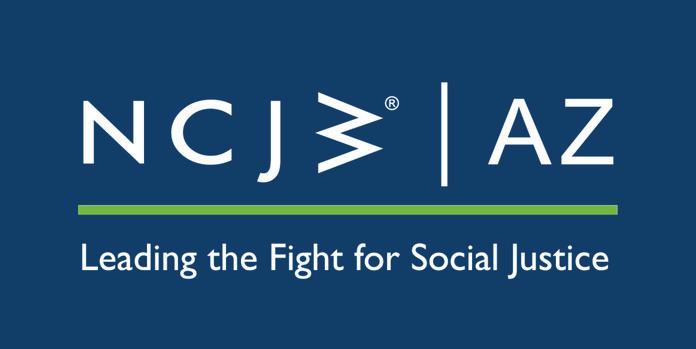








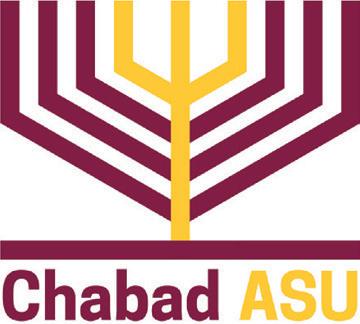


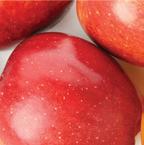
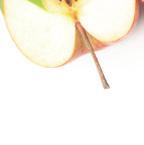













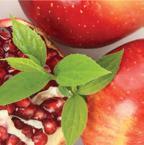




LEAH CRESSWELL | CONTRIBUTING WRITER
very year, Rosh Hashanah comes around and it’s time to dig out all the apple and honey recipes to fill the new year with everything sweet. There are various beliefs as to where the apples and honey traditions originated, but for now, let’s just embrace them with this roundup of delicious apple recipes that are perfect for the New Year.
Here are two recipes for different variations of apple cake.
LEAH KOENIG | MYJEWISHLEARNING














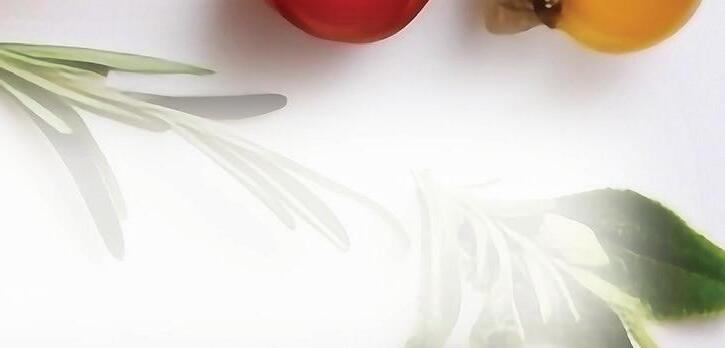















Everyone loves a great honey cake for Rosh Hashanah, but what about apple cake? This apple cake can also be poured into cups for muffins or made into healthier options by replacing flour with either whole wheat flour or ground flax seeds. Either way, it’s sure to be a beloved dessert option!


Ingredients







2 teaspoons vanilla


Wishing you a happy, healthy and sweet new year!

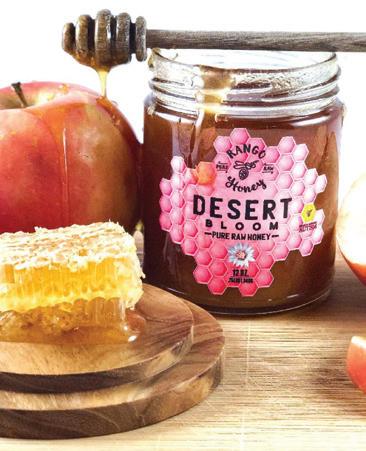

WILLMENG CONSTRUCTION, INC. has F/T position for Project Manager 2 in Phoenix, AZ. Duties: Mnge, coord, & supervise subcontrctrs, vendrs, & personnel to ensure work compltd on time w/in budget & qualty stdrds; Write bid pckgs to define prjct scope; Prep subcontrcts, P.O. agreemts, & cost cntrl budgets; Mnge monthly billing process. Requires: MS Constrctn Mgmt, Civil Eng, or rltd + 6 mos exp OR BS Constrctn Mgmt, Civil Eng, or rltd + 3 yrs exp. Bkgrd check reqd. Email resume to careers@willmeng.com, Incl Job Code WCLP-PM2
3 cups Golden Delicious or Granny Smith apples, peeled, cored and choped
3 eggs
1 cup canola oil
2 cups sugar
1 teaspoon baking soda
1 teaspoon cinnamon
1 teaspoon salt
3 cups flour
1 cup chopped walnuts



Turbinado sugar (for sprinkling on top)
Directions

Combine flour, salt, cinnamon, and baking soda in a medium bowl and set aside. In a second bowl, mix together sugar, oil, and vanilla. Add eggs one at a time and stir to combine. Pour wet mixture into the dry ingredients and stir until thoroughly combined. Fold in apples and walnuts (the batter will be thick).




Preheat oven to 350 degrees. Grease two loaf pans and spread half of the batter into each pan. Sprinkle the tops of each loaf with a little sugar and bake for approximately one hour, or until a toothpick stuck in the middle of the cake comes out clean.


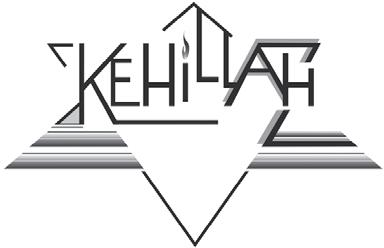





A big thank you
Holocaust remembrance
Bowl snacks
good for your heart
Congregation Beth Tefillah’s Babyccino, a mommy and me group hosted by Dr. Abigail Gewirtz, during its recent weekly Tuesday meeting. Gewirtz is a child psychologist and spoke about mindful parenting.
Temple Beth Shalom of the West Valley member Nancy Urbach was the keynote speaker at the temple’s interfaith Holocaust Remembrance Day program. She shared how her family members helped save about 200 relatives and friends from Nazi Germany in the 1930s.
Watching the Super Bowl with Smile on Seniors. Seated from left are Michael and Elaine Kates, Janet
Bureau of Jewish Education of Greater Phoenix’s Hebrew High CAREaVAN took local teens to California, where they spent 12 days in the Los Angeles area, volunteering and learning about the impact the fires had on the community. Pictured with the teens is Rabbi Daniel Sher, whose community was devastated by the Palisades Fire.
On Wednesday, April 9, the Valley of the Sun JCC Intermediate Pickleball League finished its nine-week tournament. For one day every week, during the course of the competition, participants played six games. Harriet Colan, longest tenured full-time employee at the Valley of the Sun Jewish Community Center, and pictured in a lavendar t-shirt, shows off her second-place medal.
Soundbath attendees pose for a group photo at the Center for Jewish Philanthropy of Greater Phoenix Women In Philanthropy’s “Reset & Renew for the New Year” event on Sunday, Sept. 7.
Thirteen Hamilton High School Air Force JROTC students recently attended a Post
Smile On Seniors hosted a “Chai Pins Bowling” event in early summer. Pictured from left are David Termine, Susan Hall, Janet Lottman, Sherri Foreman, Andrea Malkin, Len Krich and Dave Shooten.
Leo, one of the newest members of Temple Chai, wears a hard hat during the Phoenix synagogue’s groundbreaking at its new home.
Tikkun Olam Together, a program of the Center for Jewish Philanthropy of Greater Phoenix, worked to support the Bureau of Jewish Education of Greater Phoenix’s Passover Food Drive. Mothers and daughters packaged holiday candles and greeting cards, and added them to the Passover food packages that were delivered a few days before the start of the holiday.
Smile on Seniors hosted its Jewish Active Mature Adults brunch social on Feb. 23. Pictured from left are Ana Spence, Linda Lober, Michael and Nancy Mendelsohn, Andrea Silvey, Peter and Irene Baron, Isy and Benita Sonabend, David Termine and Dave Shooten. COURTESY OF
On Tuesday, July 15, Beth El Phoenix and Arizona Friends of Homeless received three pallets of shelf-stable food and hygiene items from Convoy of Hope in Port Huron, Michigan. Volunteers handed the donated items out to people living on the street in Phoenix.


On Thursday, April 24, several Jewish organizations recruited volunteers for
On Sunday, March 23, Temple Solel hosted its annual Women’s Passover Seder. It was an evening of spirituality, song and shared tradition led by Solel Rabbi Debbie Stiel and including the vocals of Tamara Lieberman. This special Seder weaves together the rich tapestry of Jewish heritage with the voices and experiences of women.
Ellen Shulman Tuckman, right, and Helena Feldman Nathan celebrated the 69th anniversary of their b’nai mitzvah in February.
Todd Herzog, right, and Colton Rahav, left, took part in Congregation Beth Tefillah’s Passover concert and BBQ last month in Scottsdale.
Andrea Cohen, center, thanked the members of Salk AZA (a boy’s chapter of BBYO) for hosting a bake sale to benefit the Center for Jewish Philanthropy of Greater Phoenix Camp Scholarship Program. Their efforts will help CJP send hundreds of local campers to Jewish camps across North America.
At Maidenhead Synagogue in England, Rosemary Abrami, a member of Beth Emeth Congregation in Sun City West, is pictured holding a copy of the Jewish News. She is standing with Barbara Rosenberg, a long-time member of the congregation in England. The two have been friends for 73 years.
Congregation Beth Tefillah members mixed it up with various costumes at the Purim Party in March.
Jewish War Veterans’ meeting to learn about their time in the service. Each cadet paired up with a vet to hear their story so they could later be able to share it with fellow cadets.
The Center for Jewish Philanthropy of Greater Phoenix (CJP) hosted DJ Artifex, who shared how his life and music were forever changed after performing at the Nova music festival on October 7, 2023. Pictured is CJP’s Schlicha Sapir who introduced DJ Artifex to a crowd of more than 200 people.
Lilach Mazor Power, Jewish entrepreneur, owner of the Giving Tree Dispensary and founder of the pre-roll brand Sneakers, hosted a $10,000 giveaway in February. Here, she presents a giant check for $10,000 to military veteran, Matthew Sabo.
Congregation Or Tzion Rabbi Andy Green was recently announced as the new president of the Greater Phoenix Board of Rabbis Executive Committee. The new committee is pictured from left: Rabbi Mindie Snyder, co-treasurer; Beth El Congregation Rabbi Nitzan Stein-Kokin, vice president; Green; Congregation Beth Israel Rabbi Sara Mason-Barkin, secretary; and Temple Kol Ami Rabbi Jeremy Schneider, immediate past president. Not pictured is Rabbi Mark Bisman, co-treasurer.

On Tuesday, Feb. 25, Temple Kol Ami’s board of trustees unanimously voted to extend Cantor Noa Shaashua’s contract for five more years.
Temple Solel hosted its annual fundraiser, “Solelebration,” on Saturday, Feb. 8., and honored Rabbi John and Nancy Linder on their 17 years of leadership of the
Smile on Seniors hosted an impromptu lunch for its members in July. Pictured on the left side of the table are Molly Roth, Tzipi Marsa, Carol Taus, Alan and Susan Polson. Seated on the right side of the table are Ellyn Klein, David Weinstein, Sharon Cohn and Henri Benkiel.
Congregation Beth Tefillah’s youth directors, Rabbi Yisrael and Eden Kumer, led a leadership training for teens while hiking in Phoenix. The goal was to empower the teens to lead fun and engaging activities for younger kids.
Sonabend, left, and Pinki Lifshitz demonstrate how to prepare black bean chocolate cake and tahini bread for Smile on Seniors “In the Kitchen with Benita” series on Feb. 25.
Beth Tefillah’s Mishpachti Tot Shabbat. The program will take place before Shabbat every month.
Jerry Lewkowitz, right, presented Alma Hernandez with the Lewkowitz Family Rising Leader Award at the Anti-Defamation League Desert’s Conference on Antisemitism in Tempe on Friday, April 11.
brought an issue of the
the
This COMMUNITY page features photos of community members around the Valley and the world.
This COMMUNITY page features photos of community members around the Valley and the world. Submit photos and details each week to editor@jewishaz.com by 10 a.m. Monday.
This COMMUNITY page features photos of community members around the Valley and the world. Submit photos and details each week to editor@jewishaz.com by 10 a.m. Monday.
group in a mindful parenting session about releasing self-imposed limitations while cultivating inner peace and personal growth.
SUNDAY, SEPT. 21
Sweet New Year: Full Pantry:
AUG. 29-SEPT. 14
6:30-8:30 p.m. Congregation Beth Israel, 10460 N. 56th St., Scottsdale. Join Arizona Kosher Pantry for sweet treats, raffle prizes and PJ Library activities for children. Cost: $18 adults, free for children under 12; every ticket purchased helps support families in need in the community. For more information, visit azkosherpantry.org.
“The Prince of Egypt: The Musical”: Times vary. Peoria Center for the Performing Arts, 10580 N. 83rd Drive, Peoria. Join TheaterWorks for this musical production following the journey of Moses with music and lyrics by Stephen Schwartz. Based on the Book of Exodus and the 1998 DreamWorks Animation film. Cost: $43-$53. For more information, visit theaterworks.org.

THROUGH AUG. 31
FRIDAY, SEPT. 19
SUNDAY, SEPT. 7
Young Adult Shabbat Dinner: 7-9 p.m. Beth El Phoenix, 1118 W. Glendale Ave., Phoenix. Join Beth El for a Shabbat dinner for adults in their 20s and 30s. For more information, visit bethelphoenix.com/event/young-adult-dinner.
End the Jewish Year Together: 7:15 p.m.
Paws & Hearts: Community Pet Drive: All day. Email for drop-off address. Arizona Jews for Justice is collecting donations of dog food, beds, treats, collars, leashes, bowls and booties to be distributed to the pets of people experiencing homelessness in our community. For more information, contact arizonajews4justice@gmail.com.
Chai for a morning of cleaning up the waterway. This is part of an international event sponsored by Repair the Sea, a Jewish organization dedicated to protecting our planetary waters from pollution and destruction. For more information, visit volunteer.repairthesea.org/ opportunities/7uyxsbt57p.
Reset & Renew for the New Year: 9-10:30 a.m. Location provided upon registration. Join Women IN Philanthropy, a program of the Center for Jewish Philanthropy of Greater Phoenix, for a healing experience led by a certified sound healing expert and an intention-setting discussion led by Rabbi Sadie Becker. Cost: $25; limited spots available. For more information, visit phoenixcjp.org/renew2025.
Location provided upon registration, Join the Shabbat Dinner Club along with some local matchmakers from SawYouAtSinai for a social networking Shabbat dinner for individuals in their 20s, 30s and 40s. For more information, contact Rachel at 480-203-0424 or Alyssa at 216-952-5518.
School Supply Drive: All day. Email for drop-off address. Arizona Jews for Justice is collecting school supplies to go to low-income families in the Valley. For more information, contact arizonajews4justice@gmail.com.
Bagels & Beyond: 9-11 a.m. Valley of the Sun Jewish Community Center, 12701 N. Scottsdale Road, Scottsdale. Join the VOSJ for bagels and live music or a speaker. For adults 55+. Cost: $10 members, $15 nonmembers. For more information, visit valleyofthesunj.org.
In the Footsteps of History: A Journey Through Israel of Discovery, Pain and Joy: 10-11:30 a.m. East Valley Jewish Community Center, 908 N. Alma School Road, Chandler. Join EVJCC Rabbi Michael Beyo as he shares his reflections on his summer in Israel. Cost: Free. For more information, visit evjcc.org/event/ tuesdays-at-the-j-26-2.
of Greater Phoenix and other Valley Jewish organizations to gather together to mark the second anniversary of the Oct. 7 Hamas attack on Israel. Activities include workshops, an Israel Shorts Film Festival and exhibits. For more information and to register, visit phoenixcjp. regfox.com/107-honor-unite-hope-2025.
MONDAY-WEDNESDAY, OCT. 6-8
SUNDAY, AUG. 31
FRIDAY-SUNDAY, SEPT. 19-21
Polish Reaction to the Holocaust: 10-11 a.m. Online via Zoom. Join ASU Jewish Studies for the ASU Lowe Family Lecture Series featuring Dariusz Stola discussing the controversies surrounding several major public debates about the Polish reactions to the Holocaust. Cost: Free. For more information, visit jewishstudies. asu.edu/poland.
Passage to Sweden: Streaming online. Join the Arizona Jewish Holocaust Association for this documentary that sheds light on some lesser-known stories of WWII. Cost: Free. For more information, visit azjhs.org/event/ passage-to-sweden.
Line Dancing Specialty Class: 1-2 p.m. Valley of the Sun Jewish Community Center, 12701 N. Scottsdale Road, Scottsdale. Join the VOSJ for this class teaching line dancing to country, modern and traditional music. No partner or previous experience required. For more information, visit valleyofthesunj.org.
FRIDAY AND MONDAY, SEPT. 19 & 29
THURSDAY, SEPT. 4
Volunteer Opportunity: 11 a.m. North Scottsdale location. Join Arizona Jews for Justice to distribute heat relief supplies, water and other essentials to individuals experiencing homelessness across the Valley. For more information, visit arizonajewsforjustice@gmail.com.
SUNDAY, SEPT. 21
Business & Professional Networking Breakfast: 7:30-9 a.m. Location provided upon registration. Join the Business & Professionals group, a program of the Center for Jewish Philanthropy of Greater Phoenix, for networking and breakfast. For more information, visit phoenixcjp.regfox.com/ bp-networking-breakfast-devd-6-09042025.
FRIDAY, SEPT. 5
Board Game Sunday: 1:30-3:30 p.m. Beth El Phoenix, 1118 W. Glendale Ave., Phoenix. Join Beth El for an afternoon of fun and games. For more information, contact info@bethelphoenix.com.
MONDAY, SEPT. 22
Tot Shabbat Hop: 9:30 a.m. Ina Levine Jewish Community Campus, 12701 N. Scottsdale Road, Scottsdale. Join the Bureau of Jewish Education of Greater Phoenix and the Phoenix Jewish preschool community for Shabbat morning followed by a BJE program. For children 5 and under with a parent, grandparent or caregiver. For more information, visit bjephoenix.org/ event/tot-shabbat-hop-20250905.
Community Dinner & Service: 6-8:30 p.m. Sky Lounge at Moon Valley Country Club, 151 W. Moon Valley Drive, Phoenix. Join Chabad of Moon Valley for a Rosh Hashanah service followed by a brisket dinner. Cost: $36 adults, $10 children. For more information, visit jewishmoonvalley.com/highholidays.
TUESDAY, SEPT. 23
JWV Speaker: 9:30 a.m. Oakwood Country Club Ballroom A, 24218 S. Oakwood Blvd., Sun Lakes, Join Jewish War Veterans Copper State Post 619 for guest speaker Jeremy Isom, outreach specialist for the VA Veterans Affairs. For more information, contact Arthur Uram at 702884-4175 or uramarthur@gmail.com.
Resin Tray Crafting: 10 a.m. Chabad Jewish Center of Mesa, 941 S. Maple, Mesa. Join Chabad’s Jewish Women’s Circle for tray making, brunch and a discussion on High Holiday prayers. Cost: $18. For more information, visit chabadmesa.com/JWC.
BLT Men's Meetup: 11 a.m. Address provided upon registration. Join Smile On Seniors for bagels, lox and tefillin. To register, contact 602492-7670 or visit sosaz.org.
Women’s League of Congregation Or Tzion Care Packages Event: 11 a.m.-12:30 p.m. Congregation Or Tzion, 16415 N. 90th St., Scottsdale. Join WLCOT to assemble care packages for college students. Bring 24 individually wrapped snacks or gift items and pack your own box with items your student will love. Cost: $20; includes brunch and shipping. For more information, visit otaz.org/carepackage.
Tashlich at the Park: 3:30-4:30 p.m. Roadrunner Park near the lake, 3502 E. Cactus Road, Phoenix. Join Valley Beit Midrash, Arizona Jews for Justice, PJ Library and the Center for Jewish Philanthropy of Greater Phoenix and start the year with intention, connection and blessings. Cost: $18 adults, $10 children; includes dinner and refreshments. For more information, contact Karri at karri@valleybeitmidrash.org or visit valleybeitmidrash.org.
TUESDAY, SEPT. 30
Apples to Apples-Kadima Event: 11:45 a.m.-1 p.m. Congregation Or Tzion, 16415 N. 90th St., Scottsdale. Join Or Tzion for a Rosh Hashanah youth event featuring games, arts and crafts, apple pie in a cup, gaga and more. Cost: Free for youth members; $10 for nonmembers. For more information, visit otaz.org/apple.
The Great Sukkot Pasta Party: 5-6:30 p.m. East Valley Jewish Community Center, 908 N. Alma School Road, Chandler. Join the EVJCC Early Learning Center for an evening of pasta, crafts and entertainment by DJ Munition. Cost: $25 for a family of four; $8 individuals; registration required. For more information, visit eastvalleyjcc.regfox.com/pasta-party.
WEDNESDAY, OCT. 1
BEWL Smiles & Tiles: 1-3 p.m. Beth El Phoenix, 1118 W. Glendale Ave., Phoenix. Join Beth El Women’s League for an afternoon of mahjong, prizes and refreshments. Cost: $10 per person. For more information, visit beth-el-womensleague.square.site.
Free Birds Kickoff Happy Hour: 5-7 p.m. State 48, 15600 N. Hayden Road, Scottsdale. Join Congregation Or Tzion’s for a kick-off event for a new social group for Gen X (born mid-1960s to early 1980s). Cost: $15; includes appetizer and one drink. For more information, visit otaz. org/freebirds.
Celebration in the Sukkah: 5:45 p.m. on Oct. 6; 9 a.m. on Oct. 7 and Oct. 8. Beth Emeth Congregation of the West Valley, 13702 W. Meeker Blvd., Sun City West. Join Hazzan Lev Ettelson for services, after which all guests are welcome to sit in the sukkah for learning, socializing and refreshments. For more information, call 623-584-7210.
WEDNESDAY, SEPT. 10
WEDNESDAY, OCT. 8
Sukkot Under the Stars: 5:45-8 p.m. Beth El Phoenix, 1118 W. Glendale Ave., Phoenix. Join Beth El for a family friendly Yom Tov service. Bring your own vegetarian/dairy dinner. For more information, visit bethelphoenix.com/ event/sukkot.
Challah Making for Rosh Hashanah: 3-4:30 p.m. East Valley Jewish Community Center, 908 N. Alma School Road, Chandler, Join the EVJCC for an afternoon of storytelling, art projects and shaping your own challah to bake at home. All ages welcome. Cost: $5 per challah; register by 5 p.m. Sept. 2. For more information, visit eastvalleyjcc.regfox.com/challah-making-for-roshhashana.
Shabbat
SUNDAYS
FRIDAYS
Chassidus Class: 9 a.m. Online. Learn about the Chasidic movement with Rabbi Yossi Friedman. Use this link: ChabadAZ.com/LiveClass. Cost: Free. For more information, visit chabadaz.com.
Shabbat in the Park: 10-11 a.m. Cactus Park, 7202 E. Cactus Road, Scottsdale. Join the Bureau of Jewish Education of Greater Phoenix monthly for music, parachute play, crafts and a family Shabbat experience. For more information, visit bjephoenix.org.
Jewish War Veterans Post 210: 10 a.m. Online. Any active duty service member or veteran is welcome to join monthly meetings, every third Sunday. Cost: Free. For more information, email Michael Chambers at c365michael@yahoo.com.
MONDAYS
Welcome Shabbat: 11-11:30 a.m. Online. Celebrate Shabbat with the JFCS Virtual Center for Senior Enrichment. Each week a different guest host will lead the program with song and celebration. Cost: Free. For more information, visit jfcsaz.org/cse.
History of Antisemitism Course: 10-11:30 a.m. Oct. 6, 13 and 20. Temple Beth Shalom of the West Valley, 12202 N. 101st Ave., Sun City. Join Rabbi Dana Evan Kaplan to learn about this pernicious hatred. Cost: $20 for members; $35 for nonmembers. Registration deadline is 12 p.m. on Oct. 1. For more information, visit tbsaz.org.
Quotable Quotes by our Sages: 7 p.m. Online. Learn with Rabbi Shlomy Levertov. Use this link: JewishParadiseValley.com/class. Cost: Free. For more information, visit chabadaz.com.
Pre-Shabbat Kiddush Club: 6 p.m. Online. Say Kiddush with Rabbi Mendy Levertov. Cost: Free. Use this link: ourjewishcenter.com/virtual. For more information, visit chabadaz.com.
Shabbat Services: 6 p.m; 9:30 a.m.; followed by a light Kiddush lunch. Beth Emeth Congregation of the West Valley, 13702 W. Meeker Blvd., Sun City West. For more information call 623-584-7210 or visit bethemethaz.org.
Partners in Torah: 7:30 p.m. Online. Join a growing group of inspired learners with Project Inspire. Cost: Free. Use this link: us04web. zoom.us/j/3940479736#success, password is 613. For more information, email Robin Meyerson at robin@projectinspireaz.com.
Learning to Trust in God: 7:30 p.m. Online. Learn with Rabbi Yossi Friedman. Use this link: ChabadAZ.com/LiveClass. Cost: Free. For more information, visit chabadaz.com.
Shabbat Services: 6 p.m; 9:30 a.m. Congregation Or Tzion, 16415 N. 90th St., Scottsdale. Services are also live streamed at otaz.org/ livestream. For more information about services, events and membership, visit congregationortzion.org or call 480-342-8858.
Torah & Tea: 7:30 p.m. Online. Learn with Rabbi Yossie Shemtov. Cost: Free. For more information, visit Facebook.com/ChabadTucson.
First Friday Shabbat Services: 6:15 p.m.; Oneg at 7:15 p.m. Valley Unitarian Universalist, 6400 W. Del Rio St., Chandler. Join Congregation NefeshSoul for Friday night services the first Friday of each month in the sanctuary building of Valley Unitarian Universalist. For more information, contact Jim Hoffman at 480-329-3316.
Single Parent Zoom: 8 p.m. First and third Monday of every month. Join The Bureau of Jewish Education’s Family University single parents’ group for those looking to form friendships and build their support system with likeminded people. For more information or to register, visit bjephoenix.org/family-university.
TUESDAYS
Shabbat Services: 6:15 p.m; 10 a.m. Congregation Beth Israel, 10460 N. 56th St., Scottsdale. Services held in the Goldsmith Sanctuary. Participants must pre-register by Thursday at 5 p.m. Priority will be given to members first and then guests. If there are more requests than available seats a lottery system will be used. For more information or to make a reservation, visit cbiaz.org/shabbat-services.
Let’s Knit: 1:30 p.m. Ina Levine Jewish Community Campus, 12701 N. Scottsdale Road, Scottsdale. Share the pleasure of knitting, crocheting, etc. outside the social hall in the campus. Can’t knit? They will teach you! Every level welcome. Cost: Free. For more information, visit vosjcc.org.
Torah Studies: 7:30 p.m. Online. Learn with Rabbi Mendy Levertov. Use this link: ourjewishcenter.com/virtual. Cost: Free. For more information, visit chabadaz.com.
WEDNESDAYS
Kabbalat Shabbat and/or Shabbat morning service: 6:30 p.m.; 10 a.m.; dates vary. Congregation Kehillah, 5858 E. Dynamite Blvd., Cave Creek. Join Rabbi Bonnie Sharfman and cantorial soloists Erica Erman and Scott Leader either in person or via Zoom. For safety reasons, please register ahead of time. For dates, visit congregationkehillah.org/event/. Register by emailing info@congregationkehillah.org.
Saved by an Italian Family: 10 a.m. Online via Zoom. Join the Arizona Jewish Historical Society for a discussion by Eleanor “Mickey” Deutsch Oreman about her time hiding in the woods outside Rome and how they were saved by a Gentile family. Cost: Free. For more information, visit azjhs.org/event/ saved-by-italian-family.
Tashlikh & Family Picnic: 5:30-7:30 p.m. Granada Park, 6505 N. 20th St., Phoenix. Join Beth El Phoenix for tashlikh, shofar blowing and a family picnic. Bring your own vegetarian/dairy meal. For more information, visit bethelphoenix.com/event/tashlikh.
SATURDAY, SEPT. 27
Kol Nidre Food Drive: 5:15-6:15 p.m. Beth El Phoenix, 1118 W. Glendale Ave., Phoenix. Beth El’s Social Action Committee is collecting nonperishable food items for Nourish PHX, which serves vulnerable individuals and families in Phoenix. For more information, visit bethelphoenix.com.
Shabbat at Beth El: 5:45 p.m. on Zoom; 9:30 a.m. at Beth El Phoenix, 1118 W. Glendale. Ave., Phoenix or livestreaming at tinyurl.com/beclivestream. Celebrate Shabbat with songs, blessings and teachings with Rabbi Stein-Kokin and Cantor Sarah Bollt. For more information or to join, visit bethelphoenix.com.
My Baby and Me: 9-10 a.m. Temple Chai Early Childhood Center, 4645 E. Marilyn Road, Phoenix. Join Temple Chai ECC for a weekly gathering for families with babies up to 12 months. Cost: Free. For more information, visit tcaz. shulcloud.com/event/my-baby-and-me-playgroup.html.
Shabbat Services: 7 p.m. Temple Beth Shalom of the West Valley, 12202 N. 101st Ave., Sun City. Services are followed by an Oneg. Services are live-streamed on YouTube. For more information and to get the YouTube link, visit tbsaz.org or call 623-977-3240.
AEPi ASU Charity Golf Classic: 1 p.m. Dobson Ranch Golf Course, 2155 S. Dobson Road, Mesa. Join the Jewish fraternity AEPi for its annual golf tournament benefiting the Save a Child’s Heart Foundation. For more information, visit givetogether.aepifoundation.org/ASUGolf.
Tailgate Shabbat: 5:15 p.m. Congregation Or Tzion, 16415 N. 90th St., Scottsdale. Join Or Tzion for a Shabbat service, kosher barbecue, fun and community. Cost: $12 adults, ages under 13 and new congregants free; RSVP required by Sept. 2. For more information, visit otaz.org/tailgate.
SUNDAY, SEPT. 28
SATURDAY, OCT. 4
VOSJCC Rosh Hashanah Celebration: 3-5 p.m. Valley of the Sun Jewish Community Center, 12701 N. Scottsdale Road, Scottsdale. Join the VOSJ for an afternoon filled with family activities, games, crafts and more. Cost: $18 per family members; $25 per family nonmembers. For more information, visit valleyofthesunj.org/ kids-family/family-programs.
TUESDAY, SEPT. 9
The Origins and Traditions of Sukkot: 10:3011:30 a.m. Chapel Center, 9230 E. Sun Lakes Blvd. North, Sun Lakes. Join Sun Lakes Jewish Congregation for this adult education event. For more information, visit sljc.org.
Pomegranate Guild of Judaic Needlework, Desert Cactus Chapter: 10 a.m. The Oasis at Sagewood, 4555 E. Mayo Blvd., Phoenix. The guild meets the third Monday of the month, adjusted when necessary to accommodate Jewish holidays. For more information, visit pomegranateguild.org.
Erev Shabbat Service: 5:30 p.m. Online. Rabbi Alicia Magal will lead a service livestreamed for members of the Jewish Community of Sedona and the Verde Valley. Cost: Free. For more information and to obtain the Zoom link, visit jcsvv.org/contact.
Torah Study with Temple Beth Shalom of the West Valley: 11 a.m.-12:30 p.m. Online. Weekly study group explores that week’s portion and studies different perspectives and debates the merits of various arguments. Intended for adults, Torah study is open to students of all levels. For more information, contact the TBS office at 623-977-3240.
Mahjong: 1:30-3:30 p.m. East Valley Jewish Community Center, 908 N. Alma School Road, Chandler. Come play mahjong each week. For all levels. Cost: Free; registration required at evjcc.org/mahjong.
Shabbat Service: 5:30-6:30 p.m.; Oneg at 5 p.m. Temple B’rith Shalom, 2077 Brohner Way, Prescott. Join Temple B’rith Shalom for a musical and spiritual Shabbat service. For more information, visit brithshalom-az.org.
Shabbat Services with Beth Ami Temple: 7 p.m. Services held at Unitarian Universalist Congregation of Phoenix, 4027 E. Lincoln Dr., Paradise Valley. Join Beth Ami Temple Rabbi Alison Lawton and Cantorial Soloist Michael Robbins as they lead Shabbat services twice a month. For more information, visit bethamitemple.org.
Lunch & Learn: 12 p.m. Online. Grab some food and learn with Rabbi Yehuda Ceitlin. Use this link: Facebook.com/ChabadTucson. Cost: Free. For more information, visit chabadtucson.com.
Open House: 6:30-8:30 p.m. Temple Emanuel of Tempe, 5801 S. Rural Road, Tempe. Join TEOT and meet the new rabbi, connect with community and enjoy games, prizes and food. For more information, visit emanueloftempe. org/event/erev-shabbat-9/5/25.
SUNDAY, OCT. 5
Reverse Tashlich 2025: 7:30-9:30 a.m. Tempe Town Lake Marina Boat Launch, 550 E. Tempe Town Lake, Tempe. Join EcoChai at Temple
October 7th Phoenix Community Commemoration: 2-5 p.m. Location provided upon registration. Join the Center for Jewish Philanthropy
Coffee & Conversation with Women for Israel: 9 a.m. Online via Zoom. Join Jewish National Fund-USA for a presentation by Tania Pons Allon, director Kasser Joint Institute for Food, Water & Energy Security as she discusses her work with Blueprint Negev. Cost: Free. For more information, visit events.jnf.org/e/ wficoffee.
Ethics of Our Fathers: 7 p.m. Online. Learn with Rabbi Zalman Levertov. Use this link: bit. ly/2Y0wdgv. Cost: Free. For more information, visit chabadaz.com.
Shabbat Services: 5:30 p.m. nosh, 6:15 p.m. service; morning service has varying dates and times. Temple Chai, 4645 E. Marilyn Road, Phoenix. For more information, contact Joan Neer at jneer@templechai.com.
Third Friday Shabbat: 7-9 p.m. Group meets at a North Scottsdale location. The Desert Foothills Jewish Community Association hosts a Shabbat service followed by a program. Contact 602-487-5718 for more information. JN
Torah Study with Chabad: 12 p.m. Online. Take a weekly journey of Torah with Rabbi Yossi Levertov. Cost: Free. For more information, visit chabadaz.com.
The Thirteen Petalled Rose: 1 p.m. Online. Kabbalah class that studies “The Thirteen Petalled Rose” by Rabbi Adin Even-Israel Steinsaltz, focusing on the many concepts of Kaballah and Jewish Mysticism and applying them to everyday life. For more information or to join, visit cbtvirtualworld.com.
Grief Support Group: 5-6 p.m. Online via Zoom. Therapist Susan Charney MCW, LCSW, leads a grief support group every first and third Wednesday of the month virtually for individuals experiencing the loss of an adult child or sibling. In lieu of any fees for these sessions, donations to Temple Solel are appreciated. For more information, contact susancharneycounseling@gmail.com.
JACS: 7:30-8:30 p.m. Online. Zoom support group for Jewish alcoholics, addicts and their friends and family on the first and third Wednesdays of the month. Cost: Free. For more information, email jacsarizona@gmail. com or call 602-692-1004.
THURSDAYS
Kindness, Courage and Joy Course: 10-11:30 a.m. Oct. 9, 16 and 23. Temple Beth Shalom of the West Valley, 12202 N. 101st Ave., Sun City. Join Rabbi Dana Evan Kaplan and discuss how understanding what kindness, courage and joy are can be the first step towards deepening a commitment to becoming fully human. Cost: $20 for members; $35 for nonmembers. Registration deadline is 12 p.m. on Oct. 6. For more information, visit tbsaz.org.
Ladies Torah & Tea: 10:30 a.m. Online. Learn about the women of the Torah with Mrs. Leah Levertov. Use this link: ourjewishcenter.com/ virtual. Cost: Free. For more information, visit chabadaz.com.
Talmud - Maakos: 11 a.m. Online. Learn with Rabbi Shlomy Levertov. Cost: Free. Use this link: JewishParadiseValley.com/YJPclass. For more information, visit chabadaz.com.
The Science of Everything: 11 a.m. Online. Explore the most fundamental work of Chassidut: the Tanya, with Rabbi Boruch. Use this link: zoom.us/j/736434666. Cost: Free. For more information, visit chabadaz.com.
Mindfulness Gatherings: 12 p.m. Online. Hosted by Hospice of the Valley via Zoom. Cost: Free. To join by phone, dial 1-253-215-8782, meeting ID 486 920 2119#, to get the Zoom link or for further questions contact Gill Hamilton at ghamilton@hov.org or 602-748-3692.
Weekly Mahjong: 1-3 p.m. Temple Solel, 6805 E. McDonald Drive, Paradise Valley. Join Temple Solel each Thursday afternoon for mahjong. Lessons available for beginners. Cost: Free. RSVP via email to dottiebefore@gmail.com so they know how many tables to set up.
Jewish Baby University: 6:15-9 p.m. Sept. 11-Oct. 23. Temple Chai, 4645 E. Marilyn Road, Phoenix. Join the Bureau of Jewish Education of Greater Phoenix for a class for expectant parents. For more information, visit bjephoenix. org/baby-university.
Torah Portion Class: 7 p.m. Online or in person. Chabad Lubavitch of Fountain Hills, 16830 E. Avenue of the Fountains, Fountain Hills. Join Rabbi Mendy Lipskier for a discussion of the weekly parshah and gain new insights to the Torah. For more information, visit jewishfountainhills.com.
Teen Discussions: 7-8:30 p.m. Online. Learn with Rabbi Tzvi Rimler. Use this link: cteen.clickmeeting.com/east-valley. Cost: Free. For more information, visit chabadaz.com.
SATURDAYS
Saturday Mindfulness Gatherings: 9:30 a.m. Online. Hosted by Hospice of the Valley. To join by phone, dial 1-253-215-8782, meeting ID 486 920 2119#. To get the Zoom link or for more information, contact Gill Hamilton at ghamilton@hov.org or 602-748-3692.
Book Discussion: 1:30-2:30 p.m. Online. Join Or Adam Congregation for Humanistic Judaism on the third Saturday of every month for a book discussion. For more information and to register, contact oradaminfo@gmail.com.
FRIDAYS
Shabbat in the Park: 10-11 a.m. Cactus Park, 7202 E. Cactus Road, Scottsdale. Join the Bureau of Jewish Education of Greater Phoenix monthly for music, parachute play, crafts and a family Shabbat experience. For more information, visit bjephoenix.org.
Welcome Shabbat: 11-11:30 a.m. Online. Celebrate Shabbat with the JFCS Virtual Center for Senior Enrichment. Each week a different guest host will lead the program with song and celebration. Cost: Free. For more information, visit jfcsaz.org/cse.
Shabbat at Beth El: 5:45 p.m. on Zoom; 9:30 a.m. at Beth El Phoenix, 1118 W. Glendale. Ave., Phoenix or livestreaming at tinyurl.com/beclivestream. Celebrate Shabbat with songs, blessings and teachings with Rabbi Stein-Kokin and Cantor Sarah Bollt. For more information or to join, visit bethelphoenix.com.
Erev Shabbat Service: 5:30 p.m. Online. Rabbi Alicia Magal will lead a service livestreamed for members of the Jewish Community of Sedona and the Verde Valley. Cost: Free. For more information and to obtain the Zoom link, visit jcsvv.org/contact.
Shabbat Service: 5:30-6:30 p.m.; Oneg at 5 p.m. Temple B’rith Shalom, 2077 Brohner Way, Prescott. Join Temple B’rith Shalom for a musical and spiritual Shabbat service. For more information, visit brithshalom-az.org.
Shabbat Services: 5:30 p.m. nosh, 6:15 p.m. service; morning service has varying dates and times. Temple Chai, 4645 E. Marilyn Road, Phoenix. For more information, contact Joan Neer at jneer@templechai.com.
Pre-Shabbat Kiddush Club: 6 p.m. Online. Say Kiddush with Rabbi Mendy Levertov. Cost: Free. Use this link: ourjewishcenter.com/virtual. For more information, visit chabadaz.com.
Shabbat Services: 6 p.m; 9:30 a.m.; followed by a light Kiddush lunch. Beth Emeth Congregation of the West Valley, 13702 W. Meeker Blvd., Sun City West. For more information call 623-584-7210 or visit bethemethaz.org.
Shabbat Services: 6 p.m; 9:30 a.m. Congregation Or Tzion, 16415 N. 90th St., Scottsdale. Services are also live streamed at otaz.org/ livestream. For more information about services, events and membership, visit congregationortzion.org or call 480-342-8858.
Participants must pre-register by Thursday at 5 p.m. Priority will be given to members first and then guests. If there are more requests than available seats a lottery system will be used. For more information or to make a reservation, visit cbiaz.org/shabbat-services.
Kabbalat Shabbat and/or Shabbat morning service: 6:30 p.m.; 10 a.m.; dates vary. Congregation Kehillah, 5858 E. Dynamite Blvd., Cave Creek. Join Rabbi Bonnie Sharfman and cantorial soloists Erica Erman and Scott Leader either in person or via Zoom. For safety reasons, please register ahead of time. For dates, visit congregationkehillah.org/event/. Register by emailing info@congregationkehillah.org.
Shabbat Services: 7 p.m. Temple Beth Shalom of the West Valley, 12202 N. 101st Ave., Sun City. Services are followed by an Oneg. Services are live-streamed on YouTube. For more information and to get the YouTube link, visit tbsaz.org or call 623-977-3240.
Shabbat Services in Sun Lakes: 7-9 p.m. Sun Lakes Chapel, 9240 E. Sun Lakes Blvd. North, Sun Lakes. Sun Lakes Jewish Congregation conducts Reform Shabbat services on the second Friday of each month. New members welcome. For more information, call 480-612-4413.
Shabbat Services with Beth Ami Temple: 7 p.m. Services held at Unitarian Universalist Congregation of Phoenix, 4027 E. Lincoln Dr., Paradise Valley. Join Beth Ami Temple Rabbi Alison Lawton and Cantorial Soloist Michael Robbins as they lead Shabbat services twice a month. For more information, visit bethamitemple.org.
Third Friday Shabbat: 7-9 p.m. Group meets at a North Scottsdale location. The Desert Foothills Jewish Community Association hosts a Shabbat service followed by a program. Contact 602-487-5718 for more information.
Fitness Xpress Series with Zoe: 11-11:30 a.m. Online. Presented by JFCS Center for Senior Enrichment. Workout features weight and band exercises as well as yoga poses. Exercises will be demonstrated standing, but can also be done sitting in a chair. Cost: Free. For more information, visit jfcsaz.org/cse.
Sip & Schmooze: 11 a.m. milk + honey, 12701 N. Scottsdale Road, Scottsdale. Sip on kosher coffee or tea, enjoy a pastry and schmooze every second Monday of the month. RSVP appreciated to chani@sosaz.org or 602-492-7670. For more information, visit sosaz.org.
Featured Presentation: 12:30 p.m. Online. Join Smile on Seniors Mondays and Wednesdays to

First Friday Shabbat Services: 6:15 p.m.; Oneg at 7:15 p.m. Valley Unitarian Universalist, 6400 W. Del Rio St., Chandler. Join Congregation NefeshSoul for Friday night services the first Friday of each month in the sanctuary building of Valley Unitarian Universalist. For more information, contact Jim Hoffman at 480-329-3316.
Shabbat Services: 6:15 p.m; 10 a.m. Congregation Beth Israel, 10460 N. 56th St., Scottsdale. Services held in the Goldsmith Sanctuary.
learn from a variety of presenters about topical issues, like Q&As with medical professionals, entertainers and lectures. Cost: Free. For more information, visit sosaz.org/virtual or email Rabbi Levi Levertov at levi@sosaz.org.
TUESDAYS
Movie Discussion Group: 11 a.m. Online. Join Smile on Seniors on the third Tuesday of every month hosted by Issy Lifshitz. Cost: Free. For full details and the movie of the month visit sosaz.org/virtual or email Rabbi Levi Levertov at levi@sosaz.org.
WEDNESDAYS
Fitness Fun with Zoe: 10-10:45 a.m. Online. Presented by JFCS Center for Senior Enrichment. Workout features light chair exercises with optional weights. Cost: Free. For more information, visit jfcsaz.org/cse.
Chair Yoga with Zoe: 11-11:45 a.m. Online. Presented by JFCS Center for Senior Enrichment. 45-minute chair yoga class. No prior yoga experience required. Cost: Free. For more information, visit jfcsaz.org/cse.
THURSDAYS
Memory Cafe: 10-11 a.m. first Thursday; 1-2 p.m. third Thursday. Online. Presented by Jewish Family & Children’s Service. Program for those with changes in their thinking or memory, mild cognitive impairment due to Alzheimer’s disease or a related disorder, along with their care partners. For more information, visit jfcsaz.org/our-services/older-adult-services/ memory-cafe/.
In the Kitchen with Benita: 12:30 p.m. Join Smile on Seniors on the fourth Thursday of every month for some delicious cooking or baking fun! Cost: Free. For full details visit sosaz.org/virtual or email Rabbi Levi Levertov at levi@sosaz.org.
FRIDAYS
Welcome Shabbat: 11-11:30 a.m. Online. Celebrate Shabbat with the JFCS Virtual Center for Senior Enrichment. Each week a different guest host will lead the program with song and celebration. Cost: Free. For more information, visit jfcsaz.org/cse.
Sit or Stand Ballet Class: 12-12:45 p.m. Online. Presented by JFCS Center for Senior Enrichment. Jennifer Cafarella Betts and Friends from Ballet Theatre of Phoenix teach this class. Grab a chair or you can stand next to a chair or counter. Cost: Free. For more information, visit jfcsaz.org/cse.
Musical Friday: 12:30 p.m. Online. Join Smile on Seniors on the first Friday of every month for a musical presentation. Cost: Free. For full details visit sosaz.org/virtual or email Rabbi Levi Levertov at levi@sosaz.org. JN
Adelle Abrahams, age 102, passed away peacefully, surrounded by love, on Sept. 4, 2025. She was born Adelle Bickart on October 17, 1922, in Cleveland, Ohio.
Adelle lived a remarkable life filled with creativity, intelligence and an unwavering commitment to her family and to a large and diverse circle of friends. Adelle had a mind of her own, loved the arts, travel, golf, bridge, mahjong and always being in fashion. She loved entertaining friends and family and preparing great meals. She was an avid reader and enjoyed sharing ideas and engaging in active conversation. Adelle was an accomplished artist and interior designer that attended Cleveland Art Institute and was a member of the Arizona Art Guild.
Adelle met Bernard Abrahams (Bernie) in 1942, while attending Cleveland Heights High School. They were married in 1942, while Bernie was in Army basic training. They had Gary in 1944, before moving to Phoenix, and then had Kenneth in 1948.
Adelle was predeceased by her parents Fred and Ruth Bickart, siblings Alan Bickart and Jeannie Fisher, husband Bernard Abrahams and son Gary Abrahams. Adelle was a dedicated matriarch, leading the family with grace and love. She is survived by her son Ken Abrahams (Kelley); grandchildren Tyler Abrahams (Shana) and Carly Malone (Greg); and great-grandchildren Evie, Maya, Finn and Bailey.
Adelle’s family wishes to recognize the friendship and loving support Adelle enjoyed from Harold Sucher and Julie Cressman. We are eternally grateful for the lessons she taught us and the love that she gave. Your memory will live on in our hearts forever.